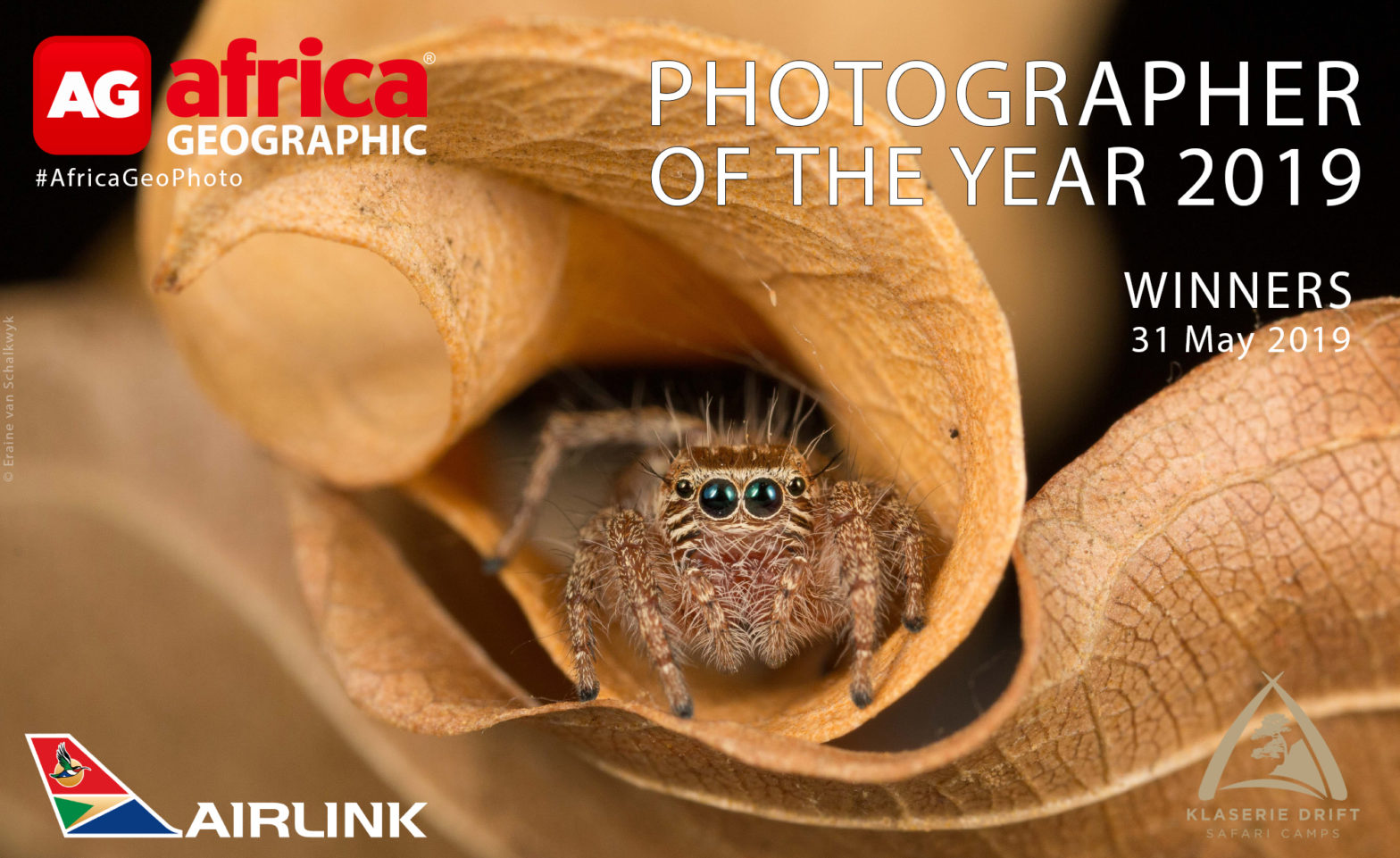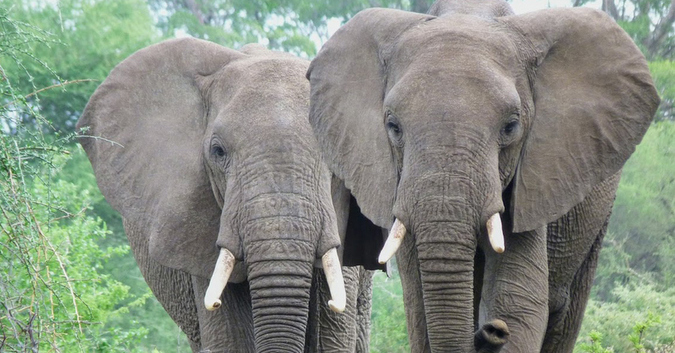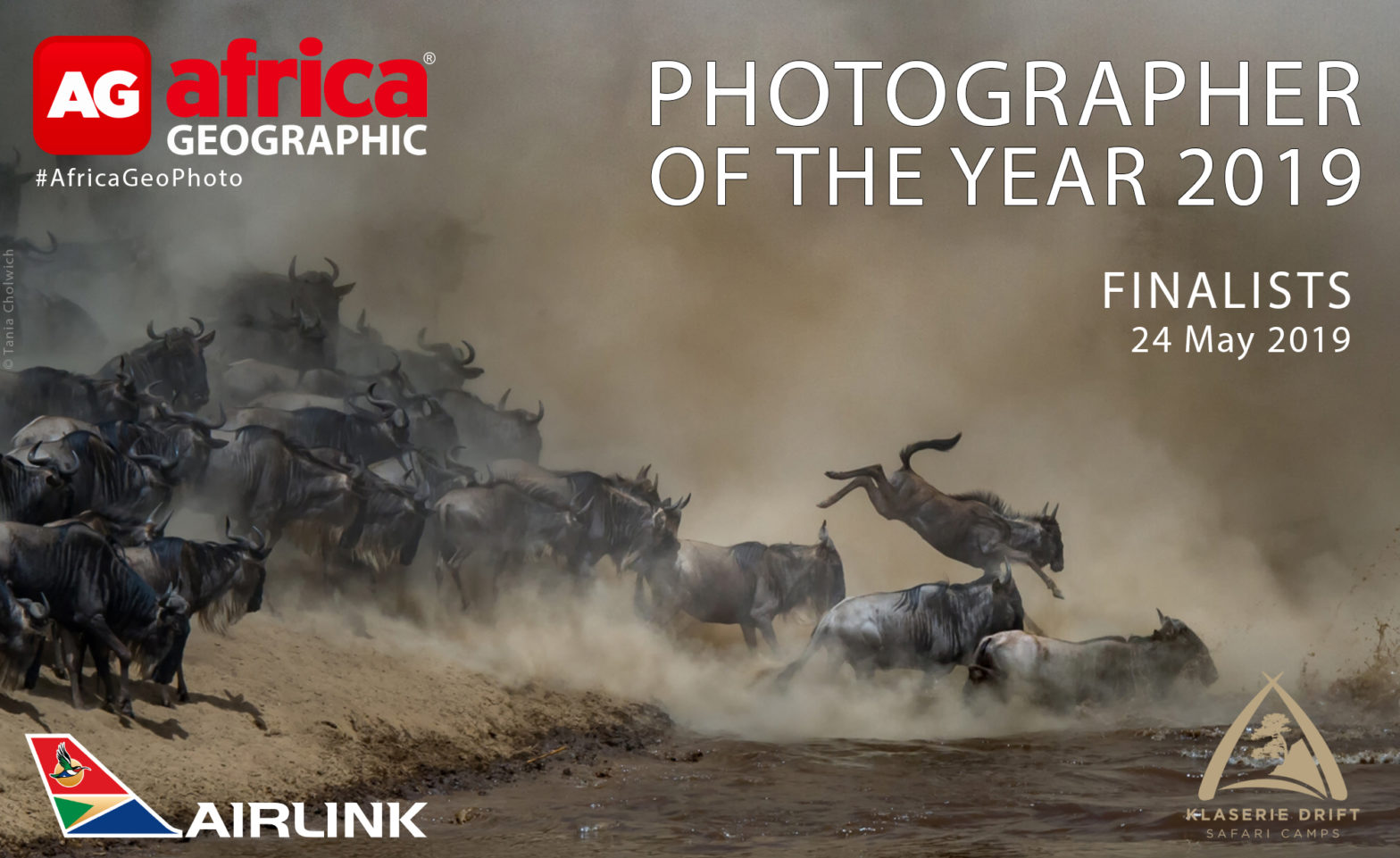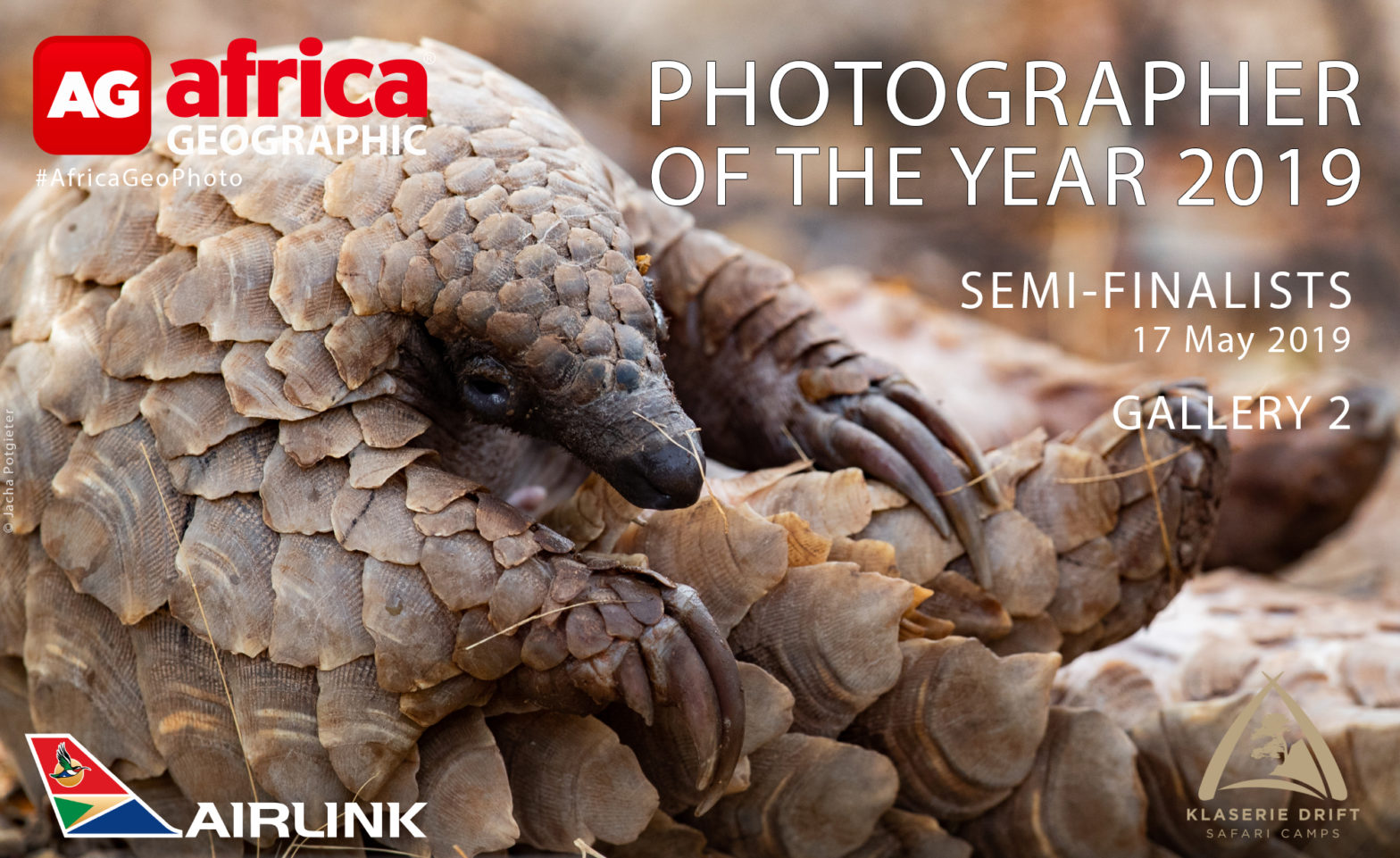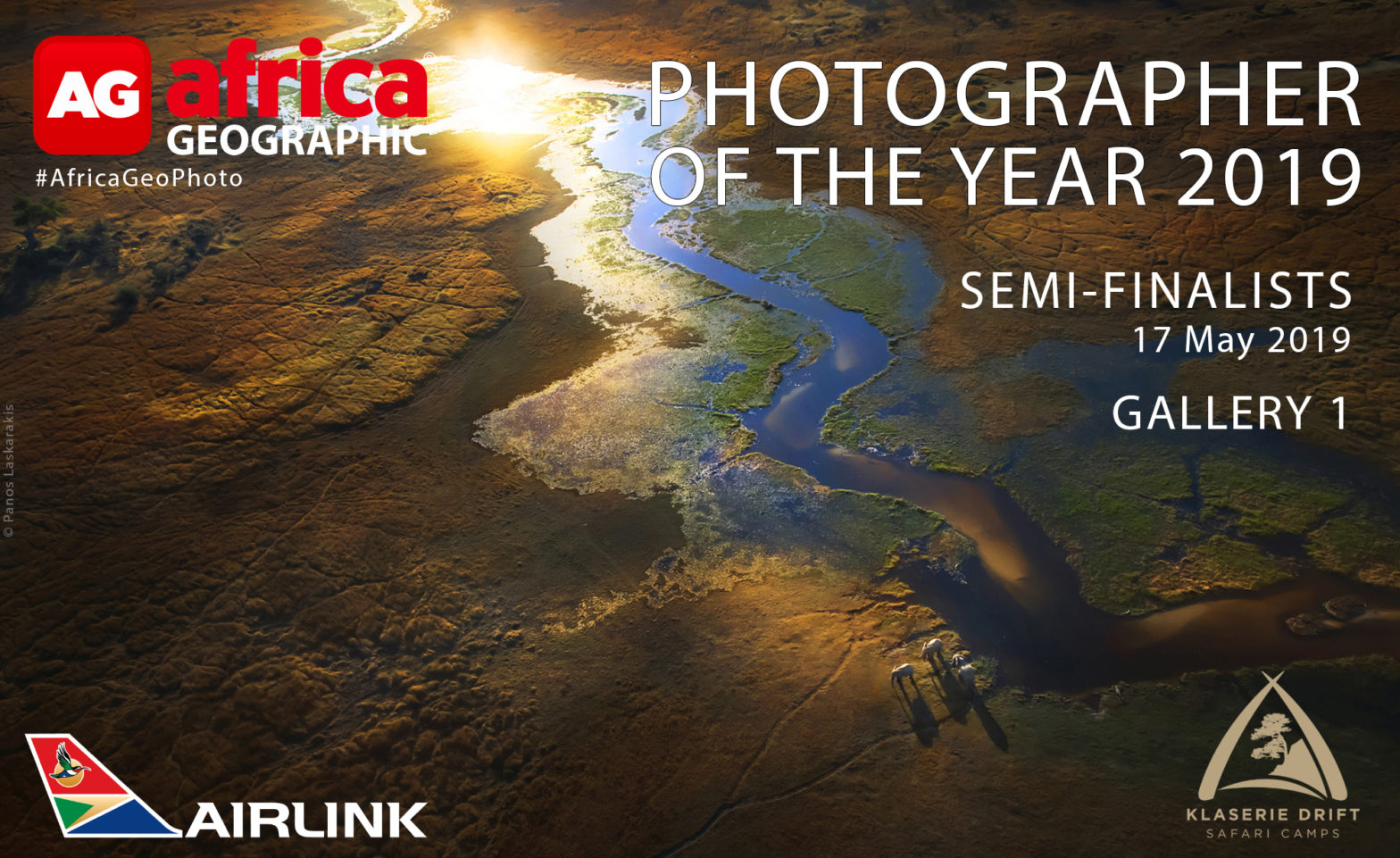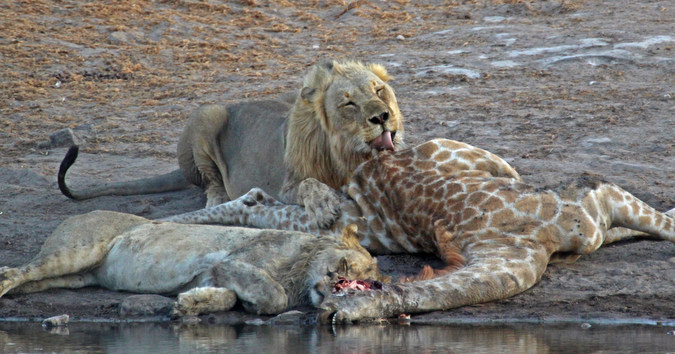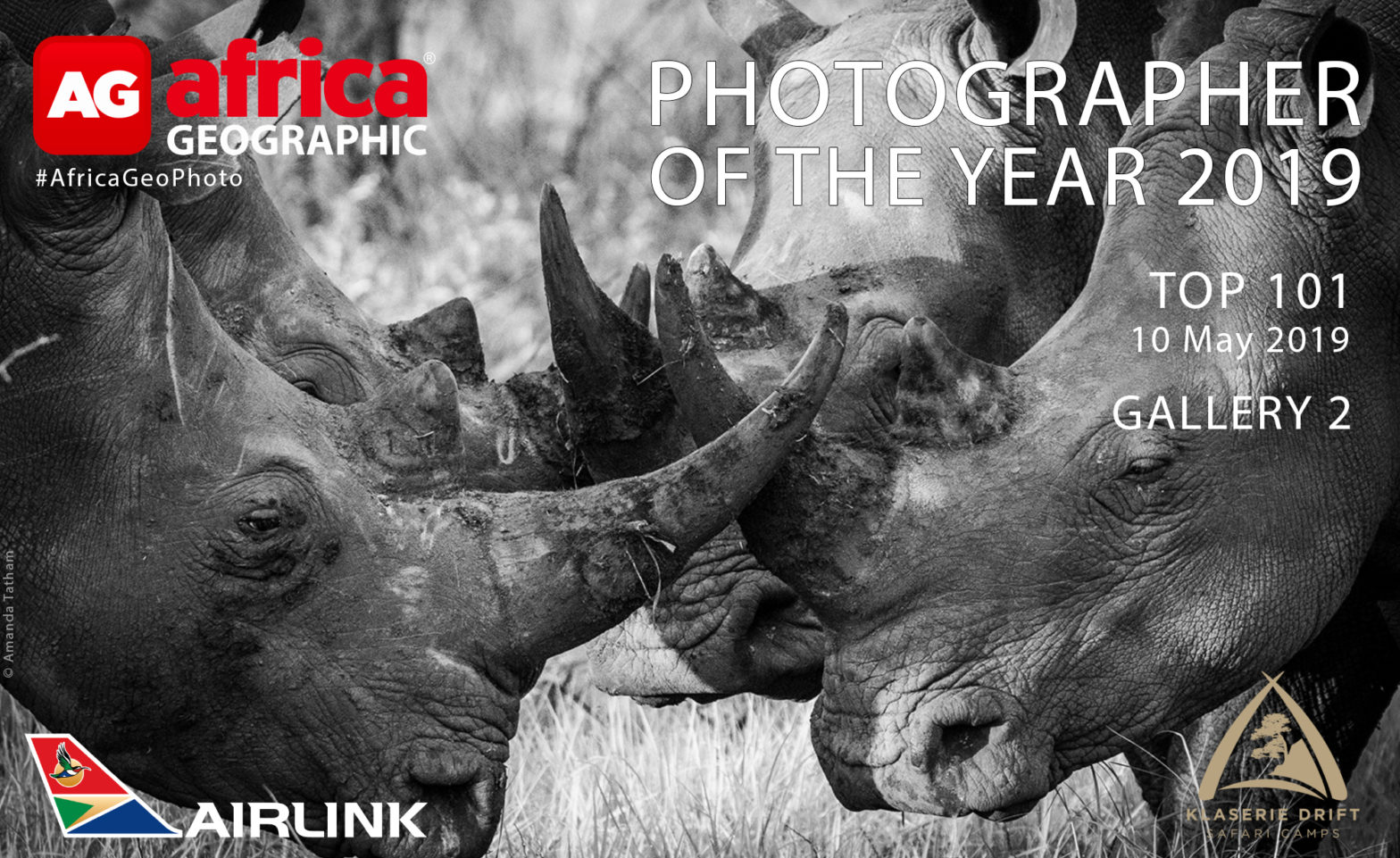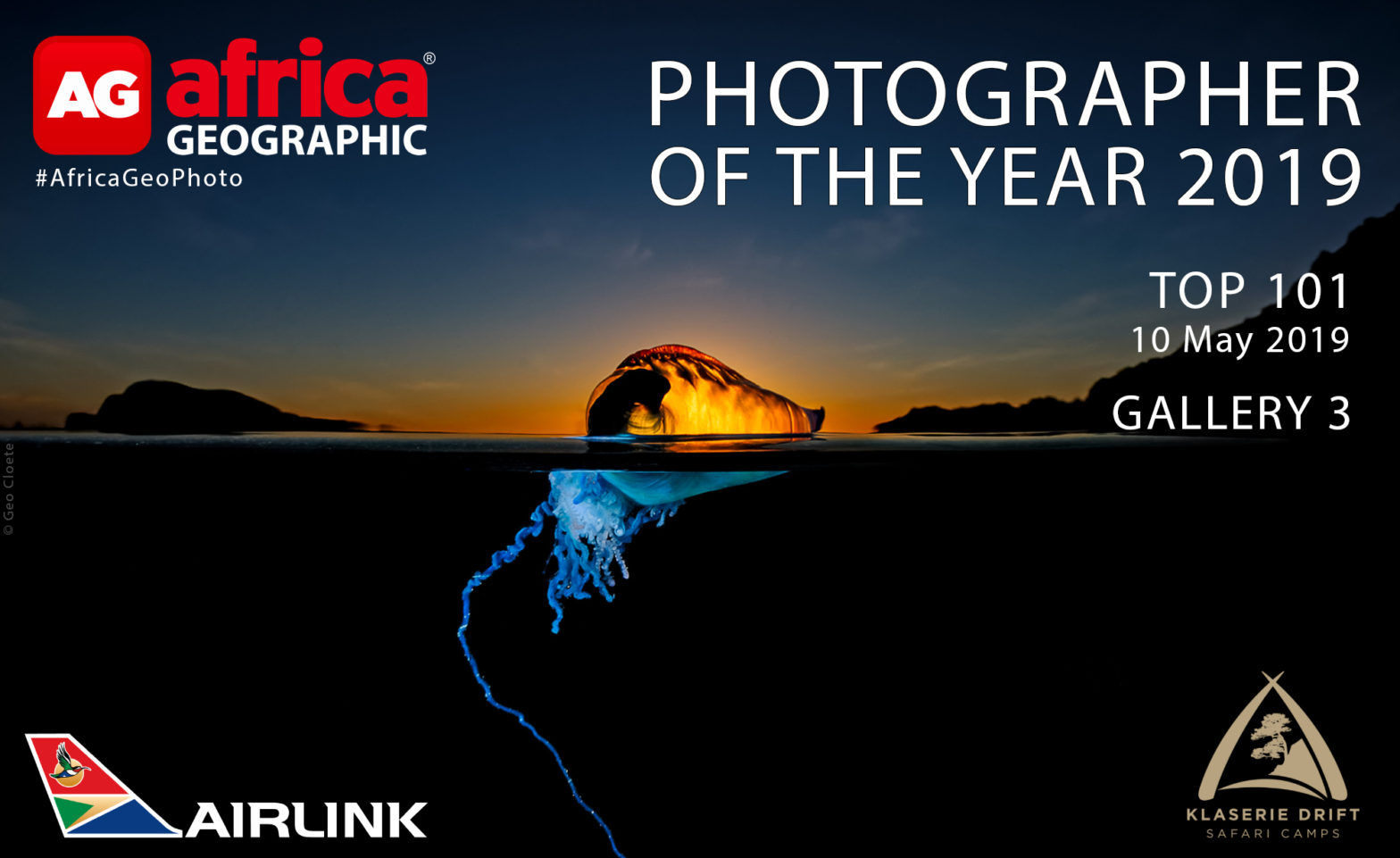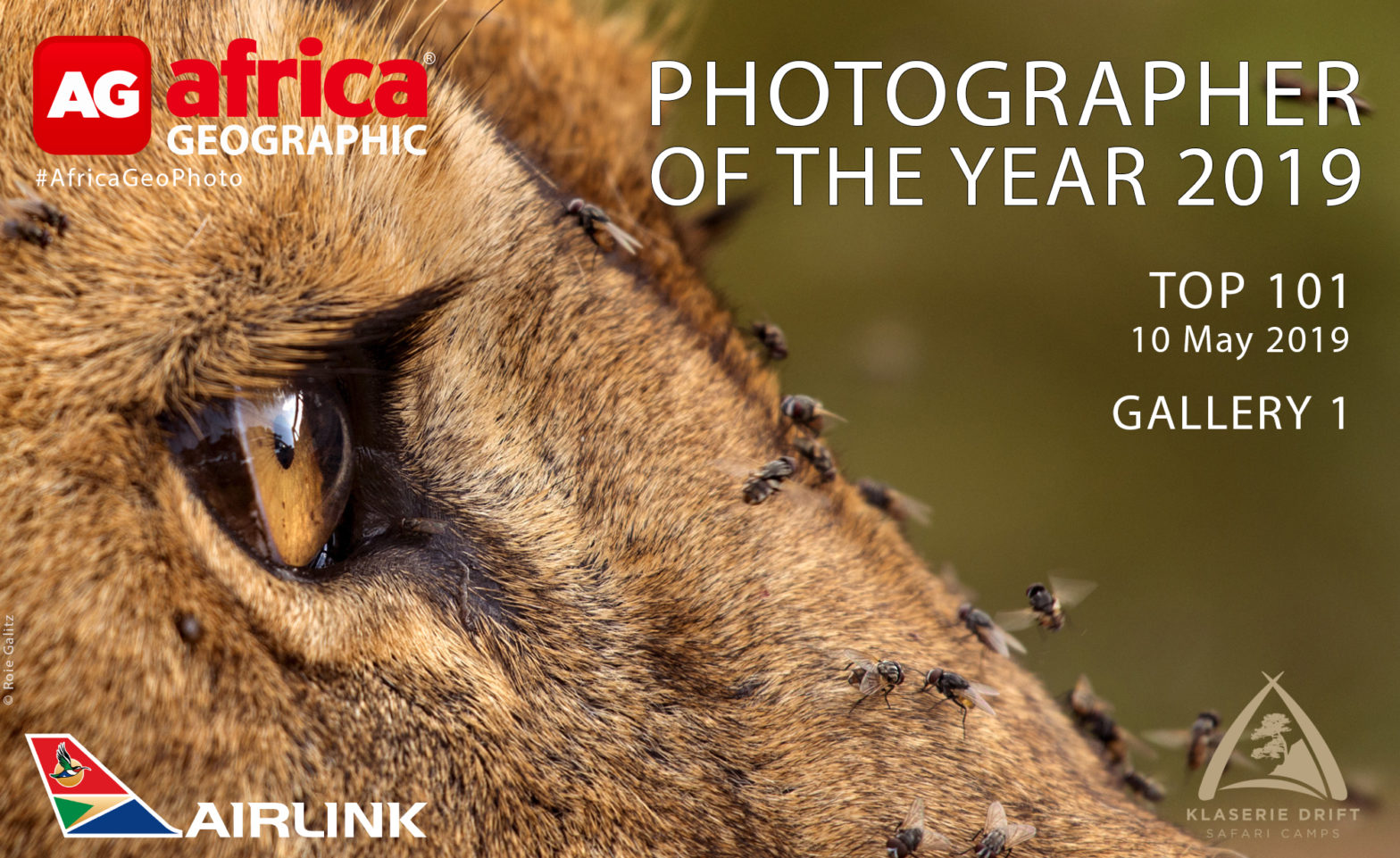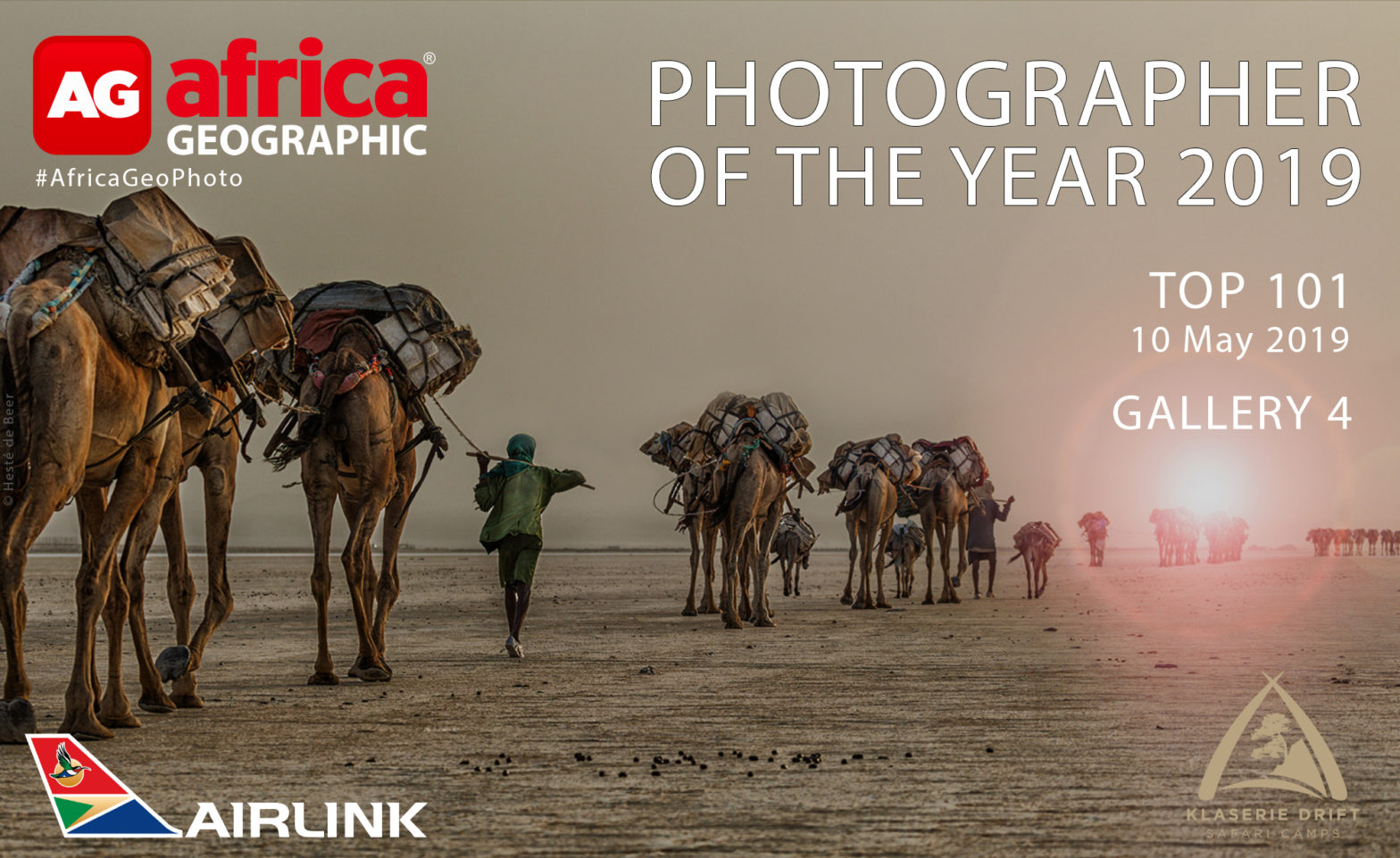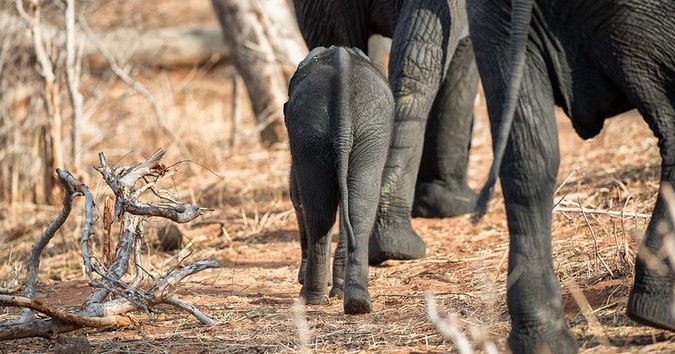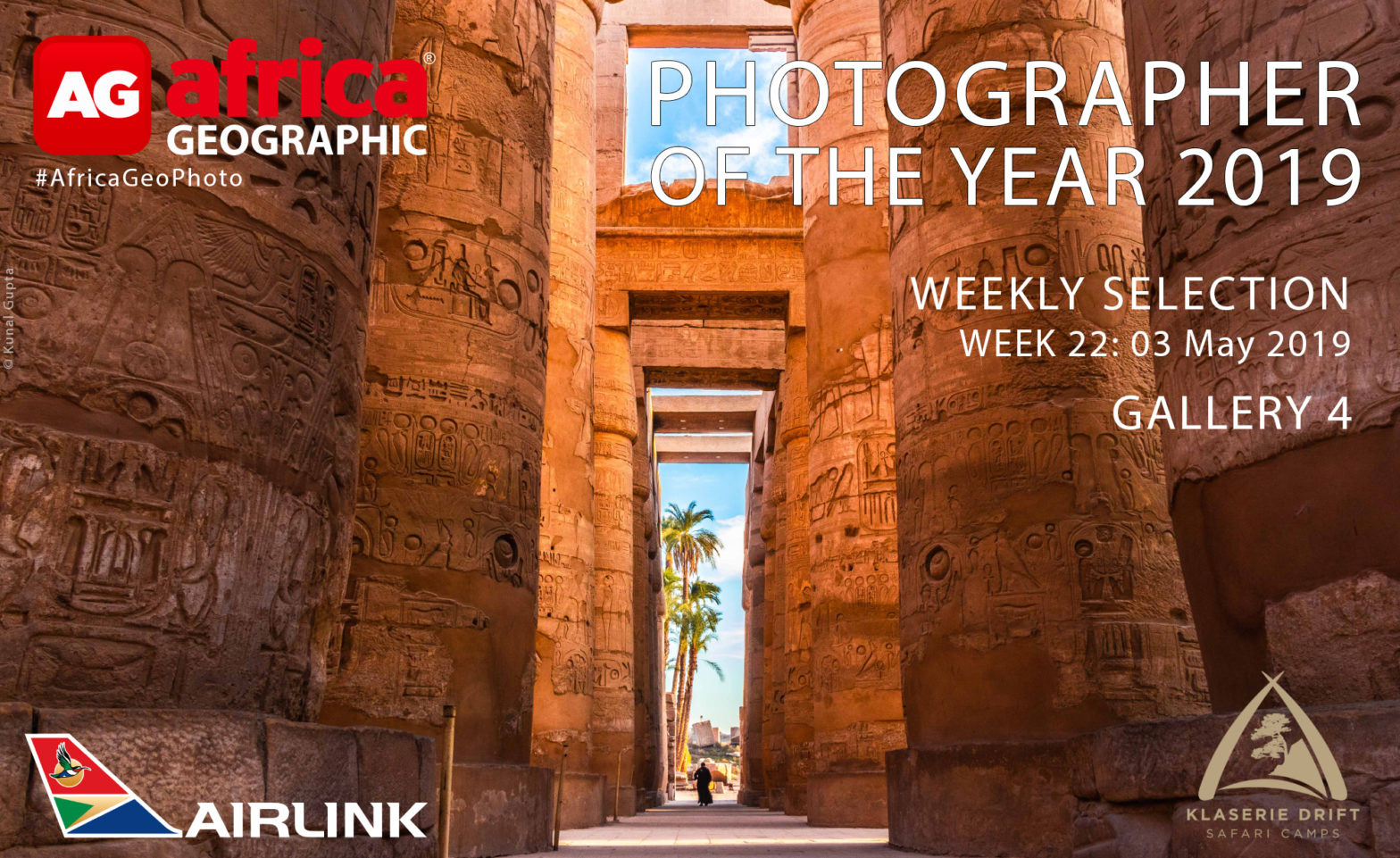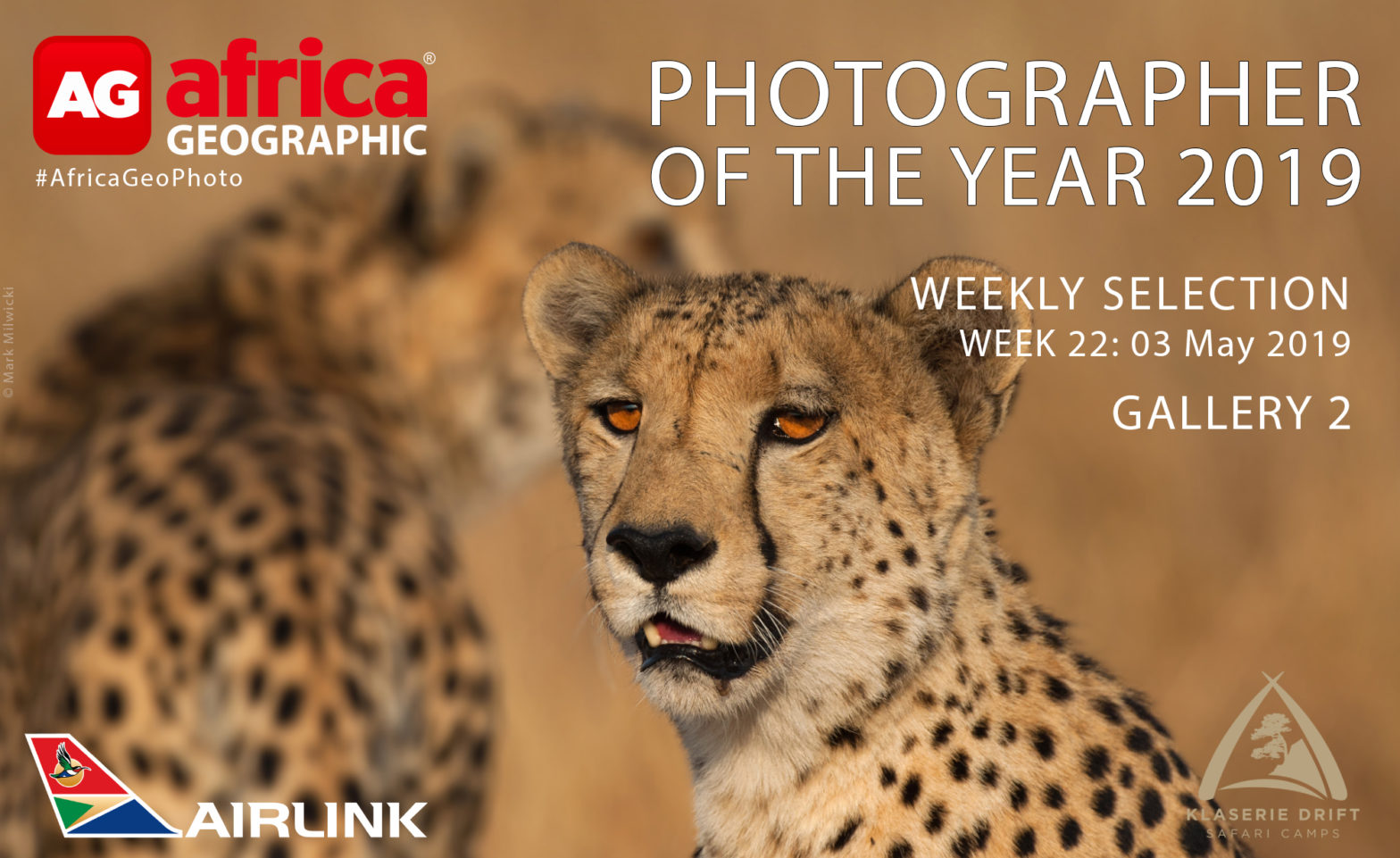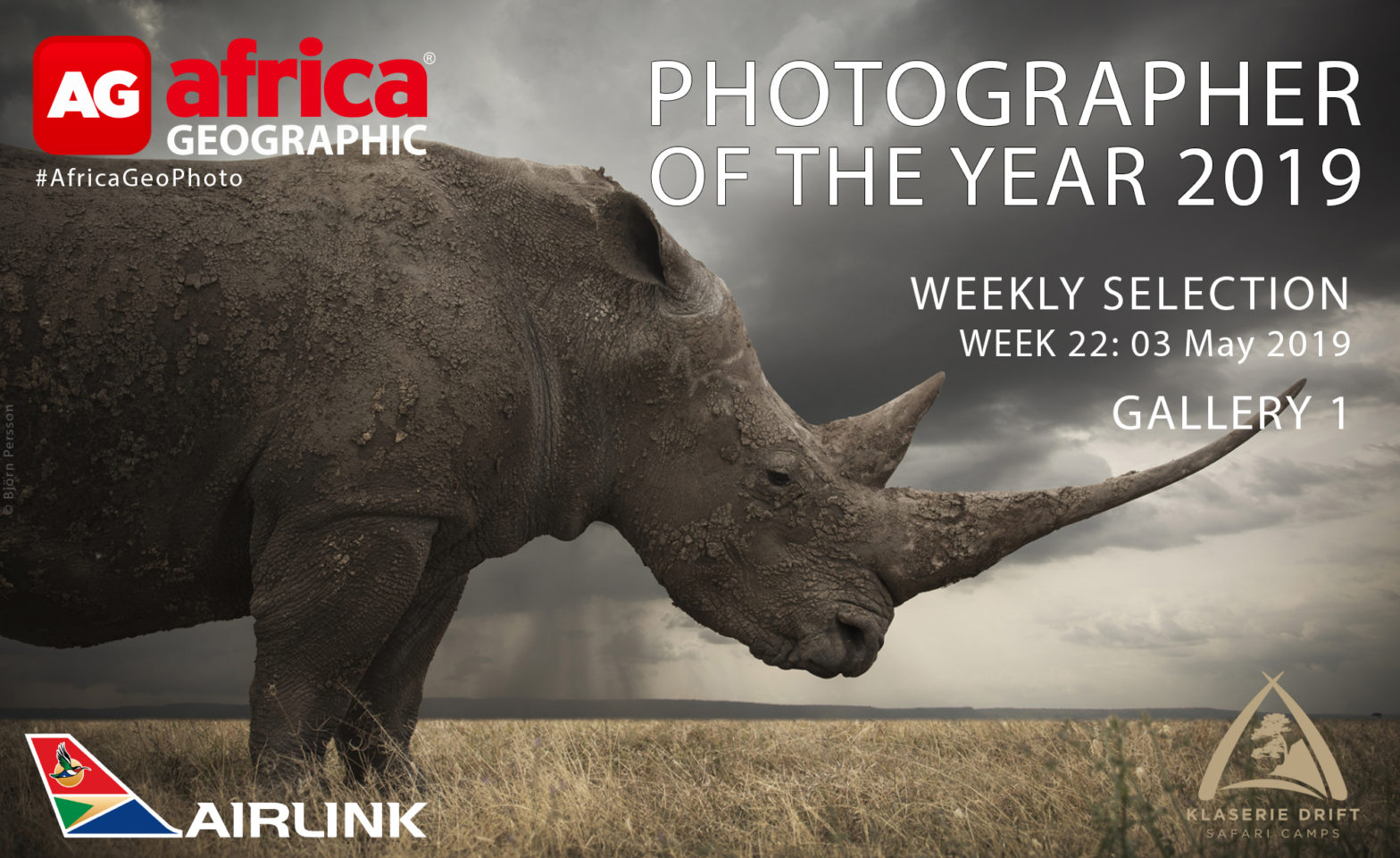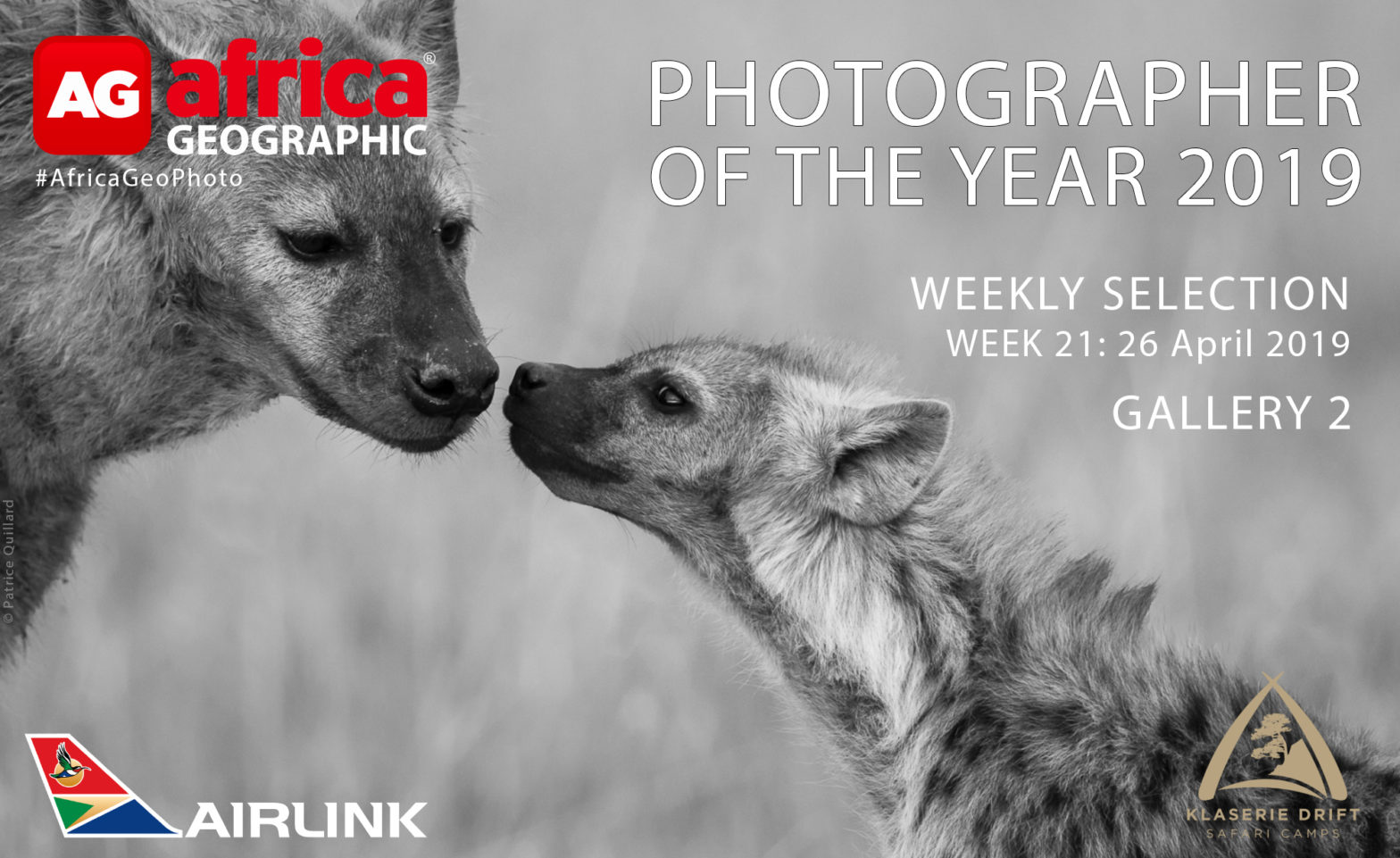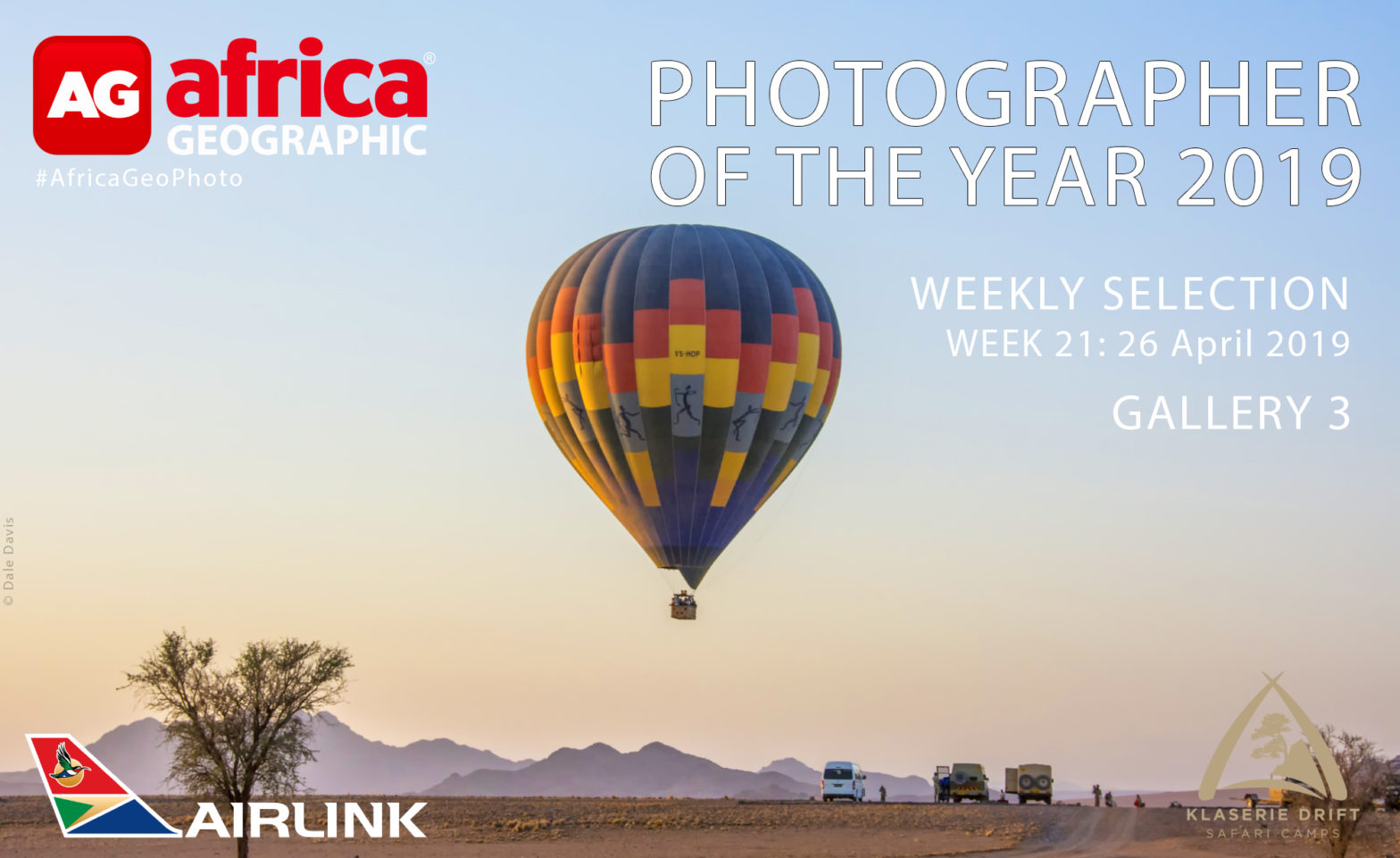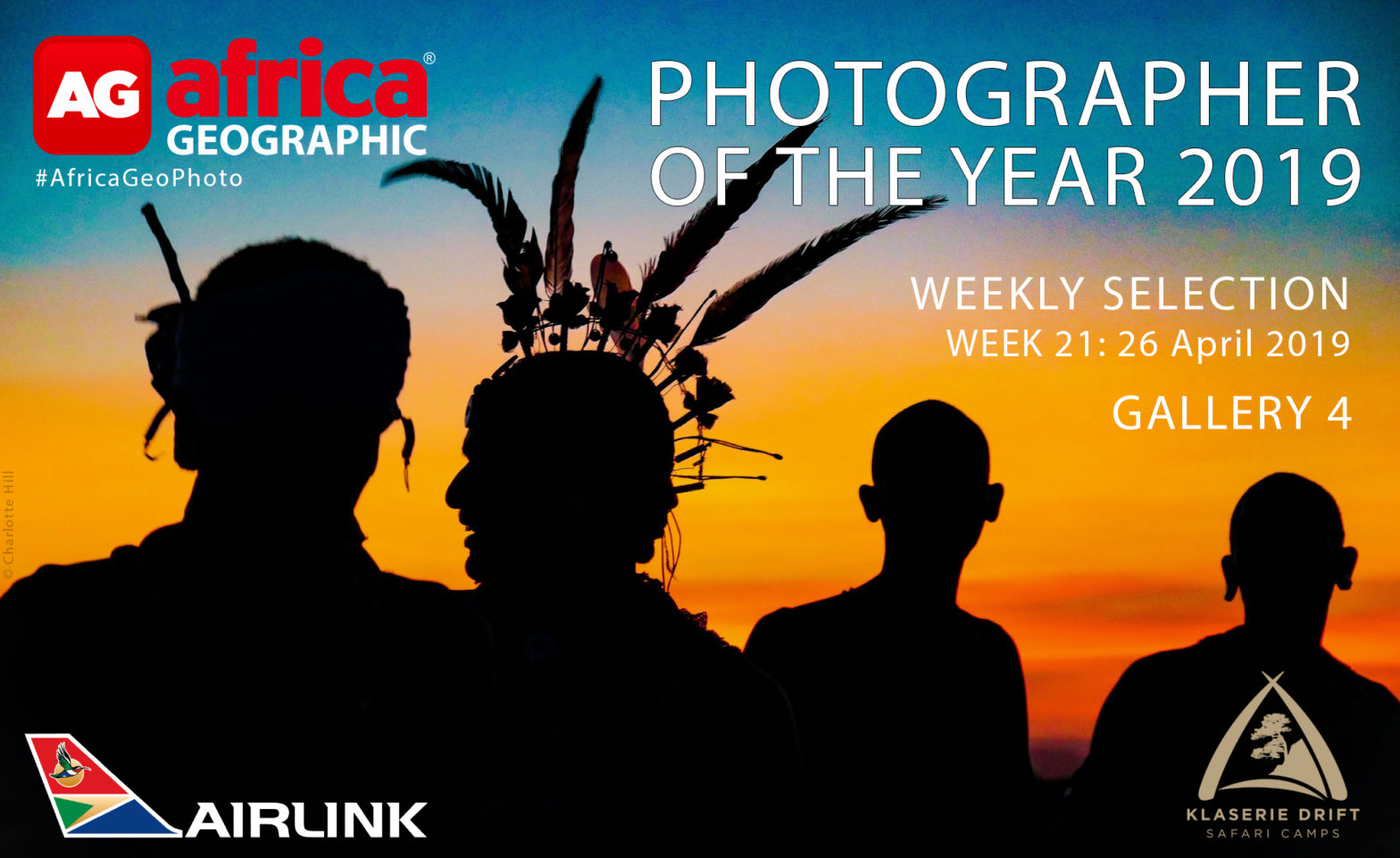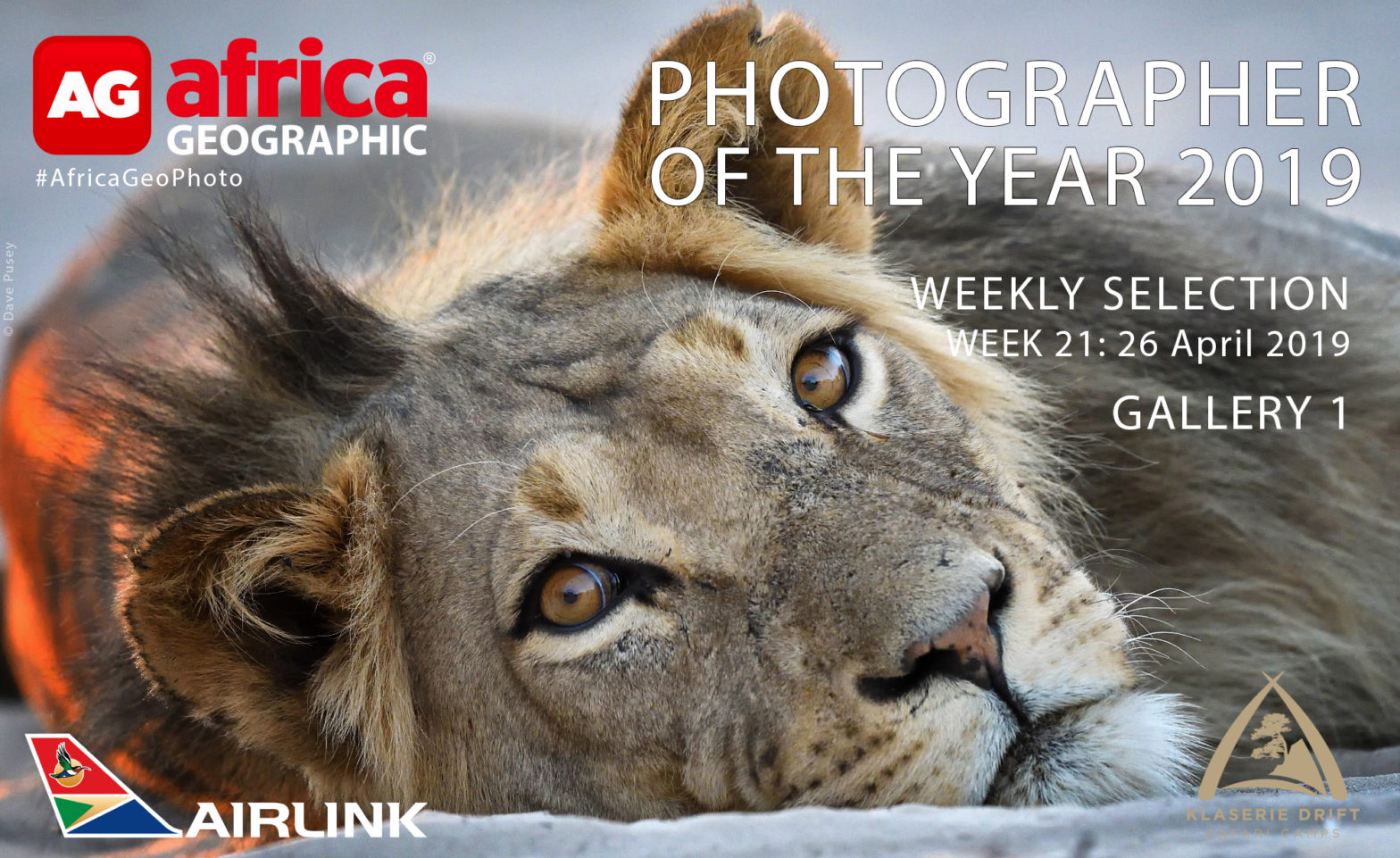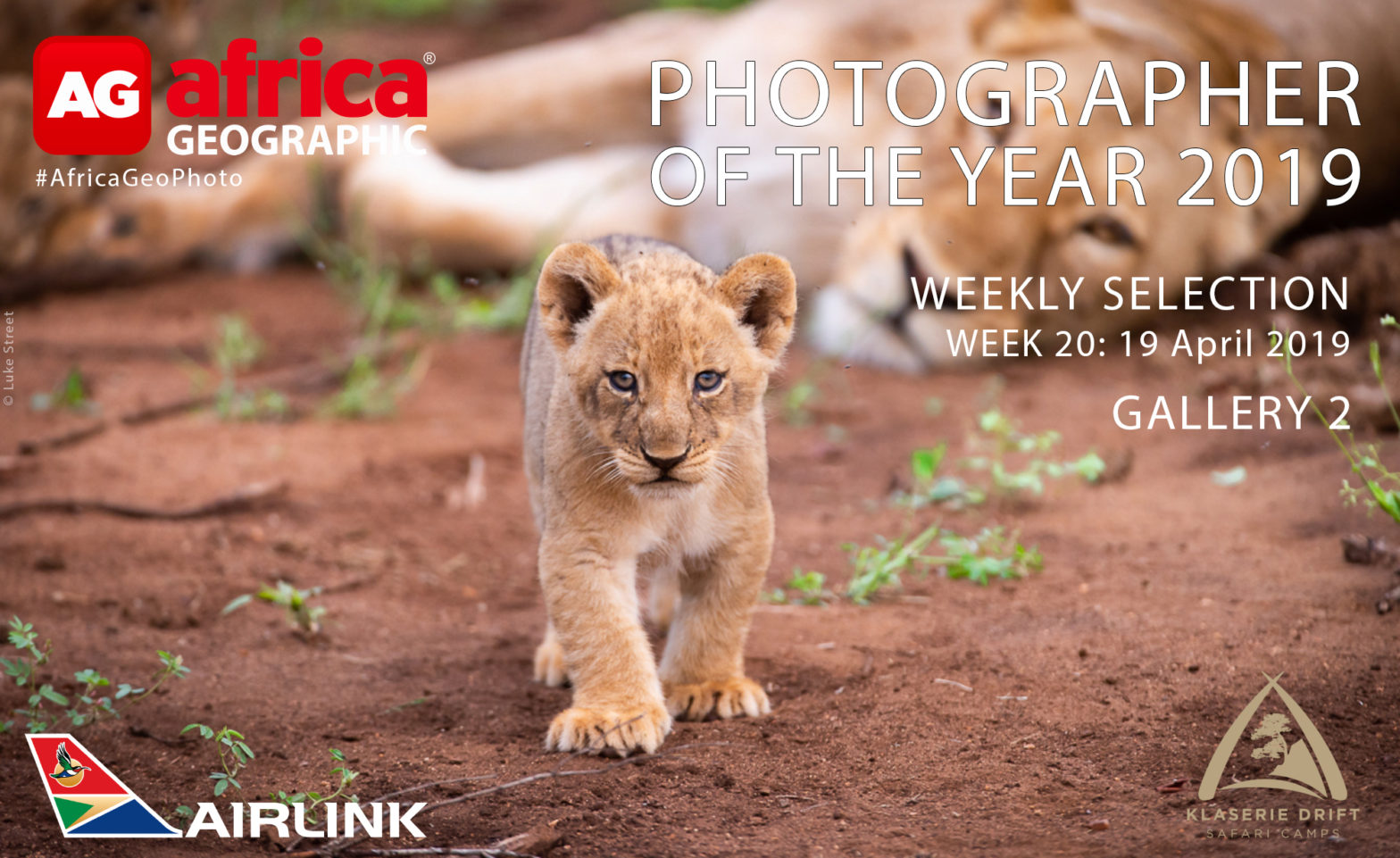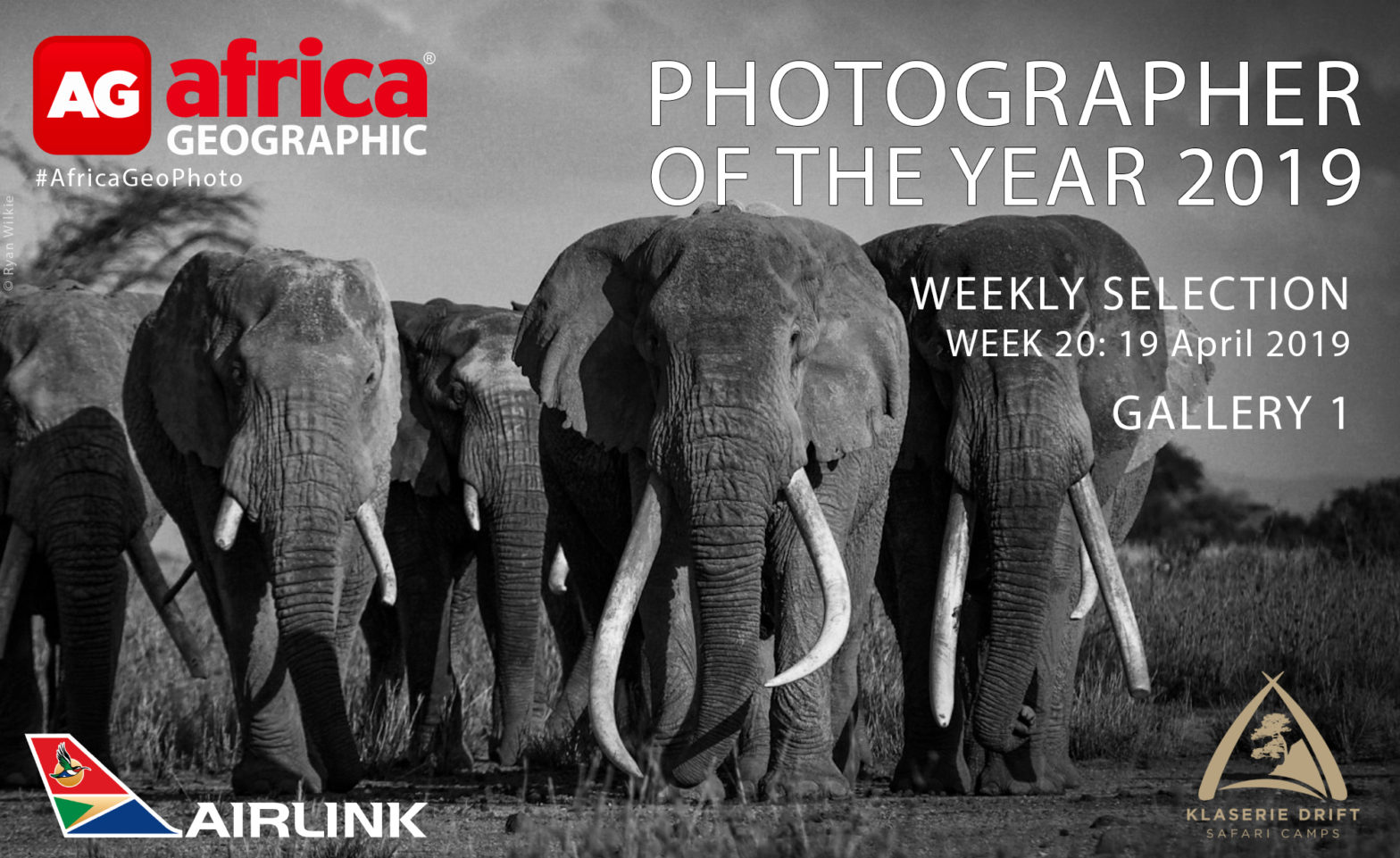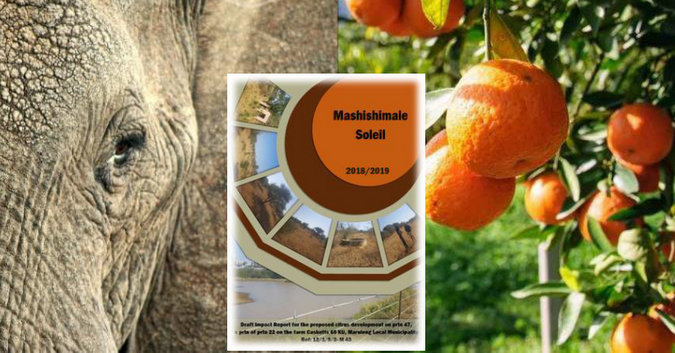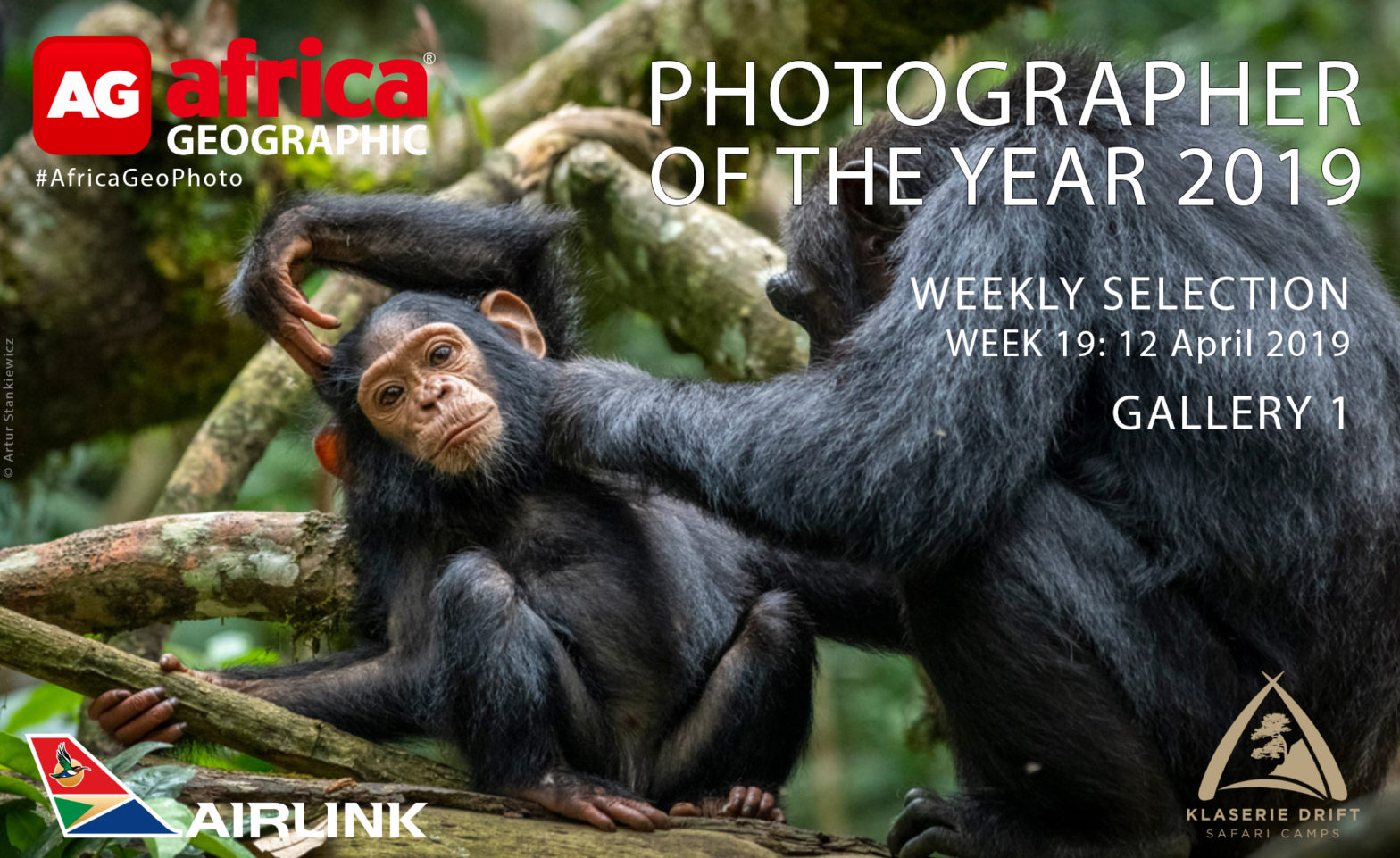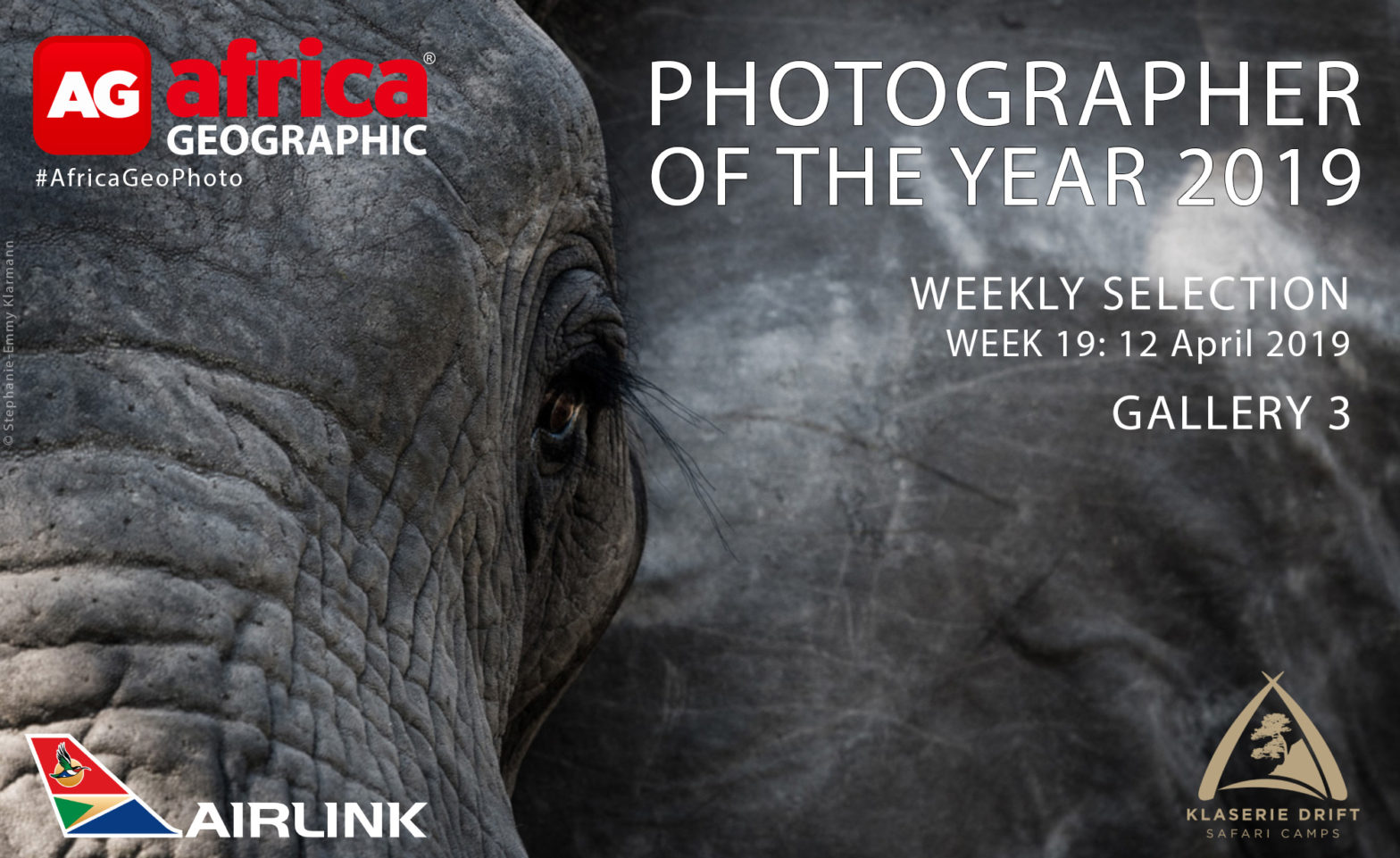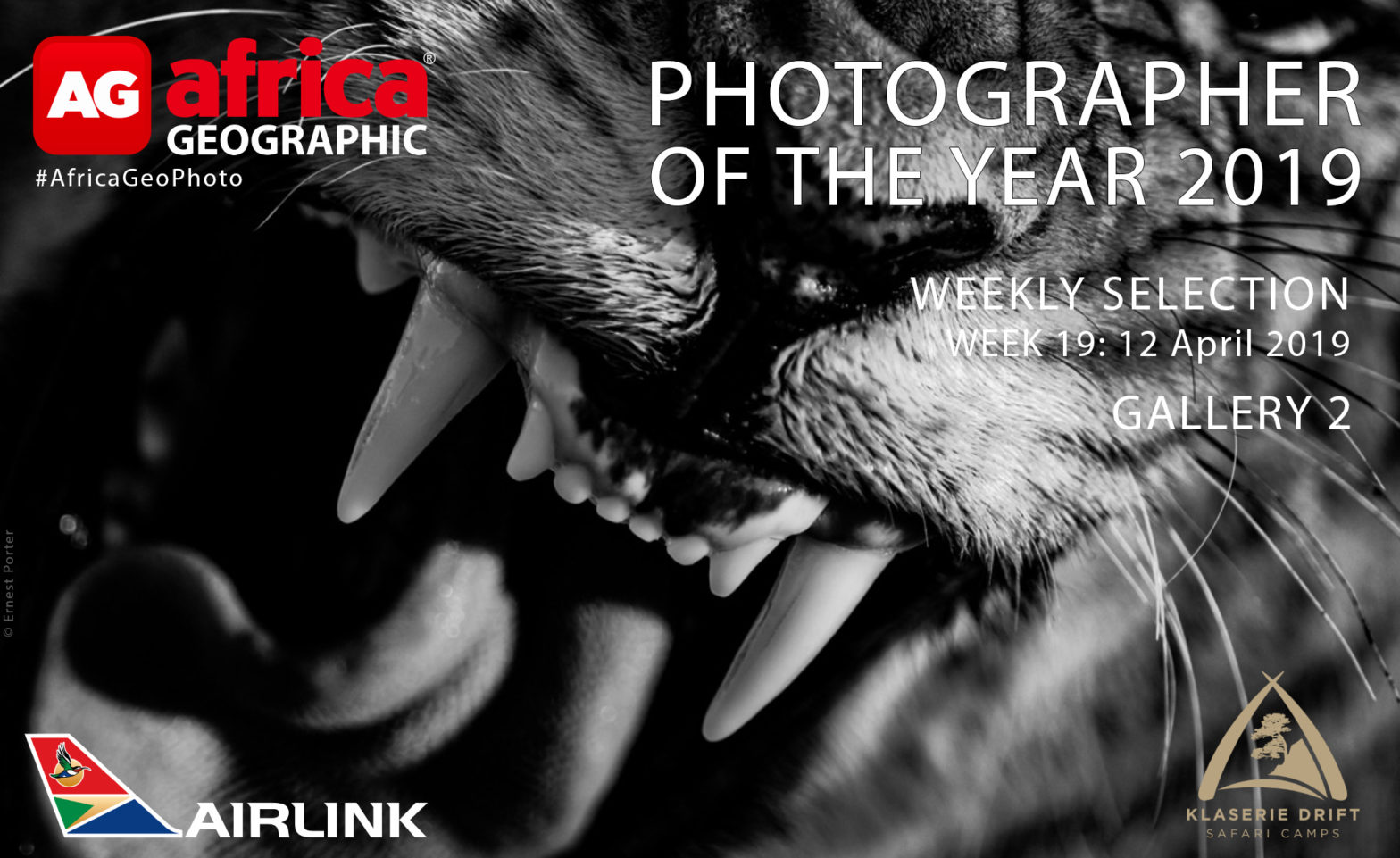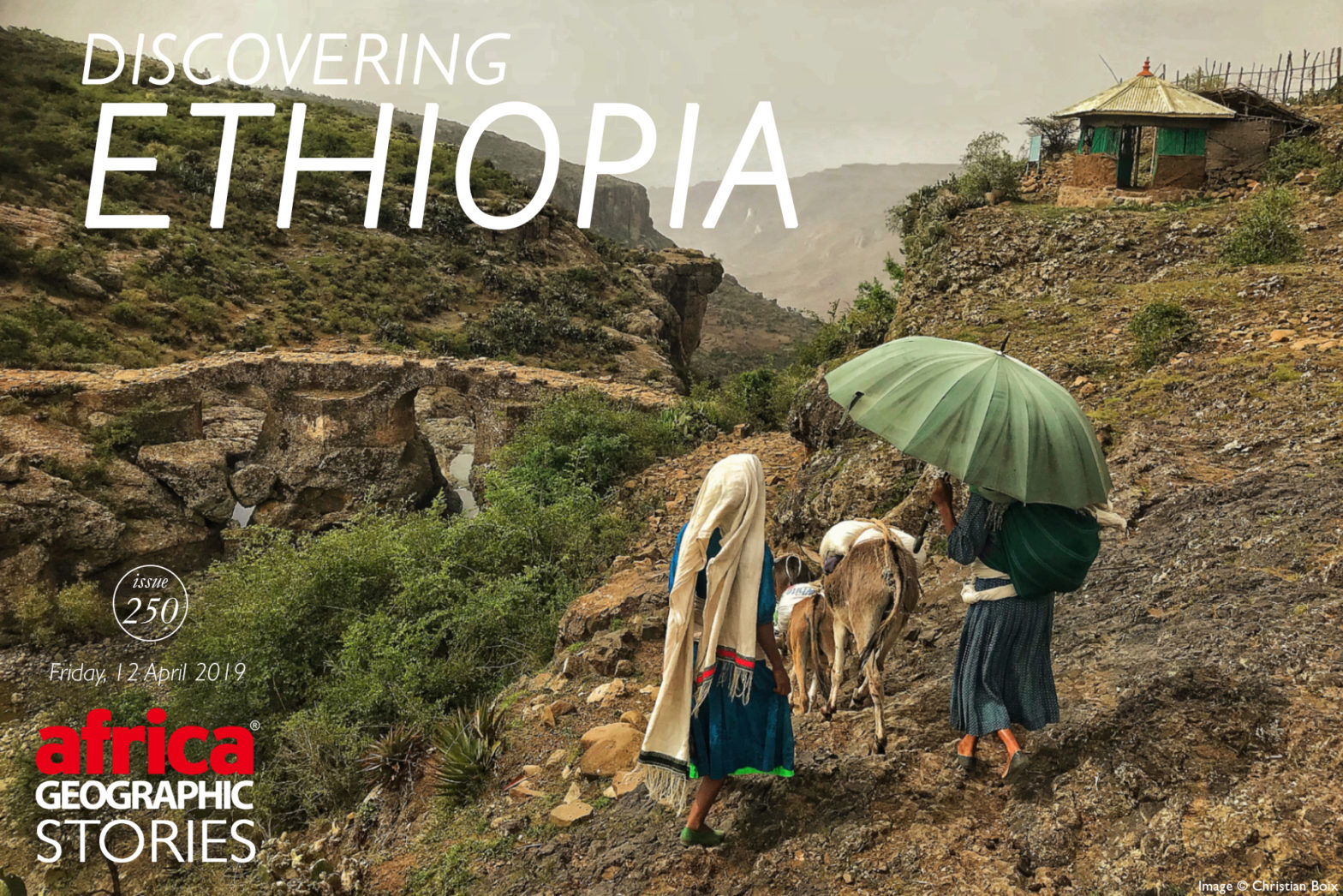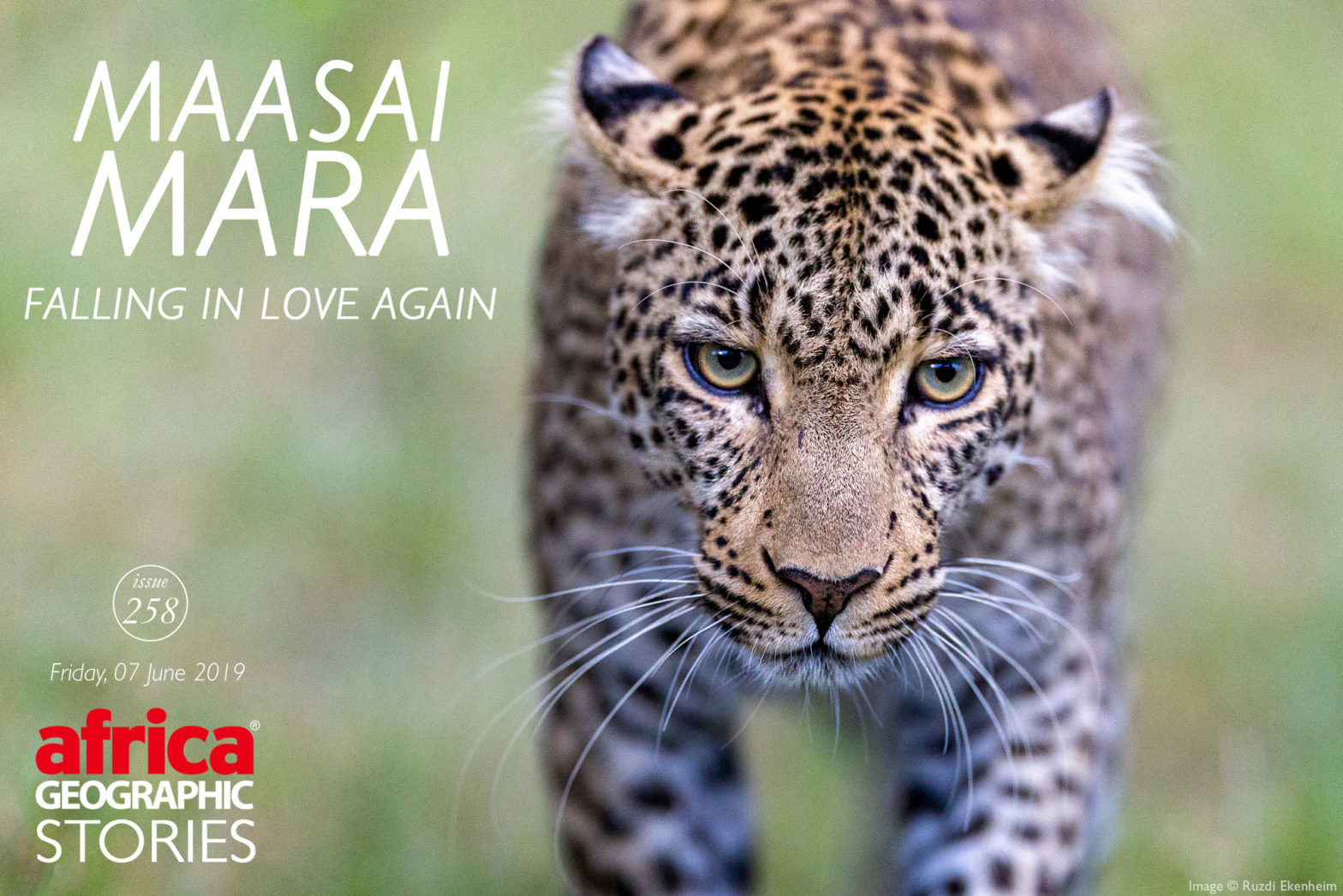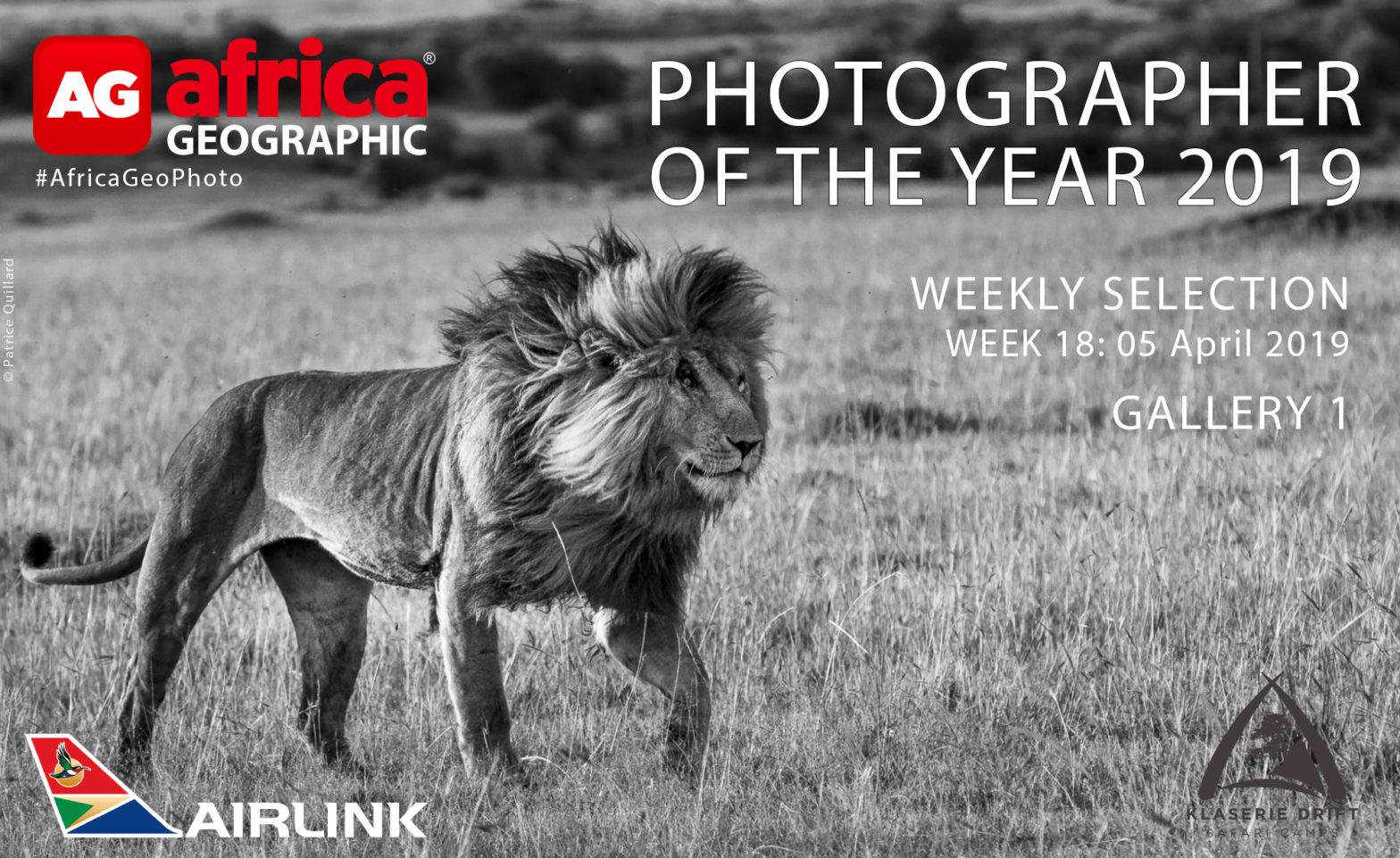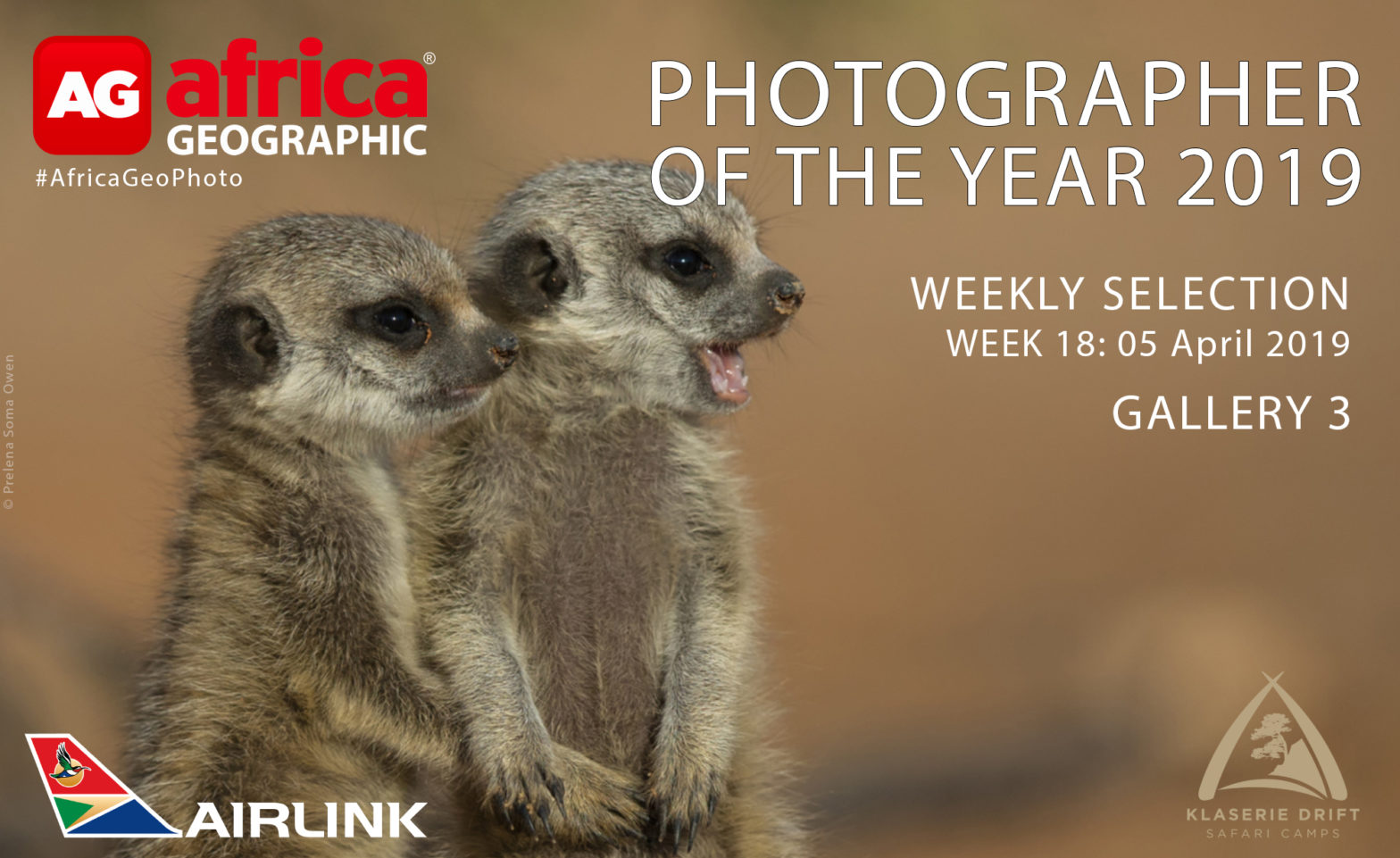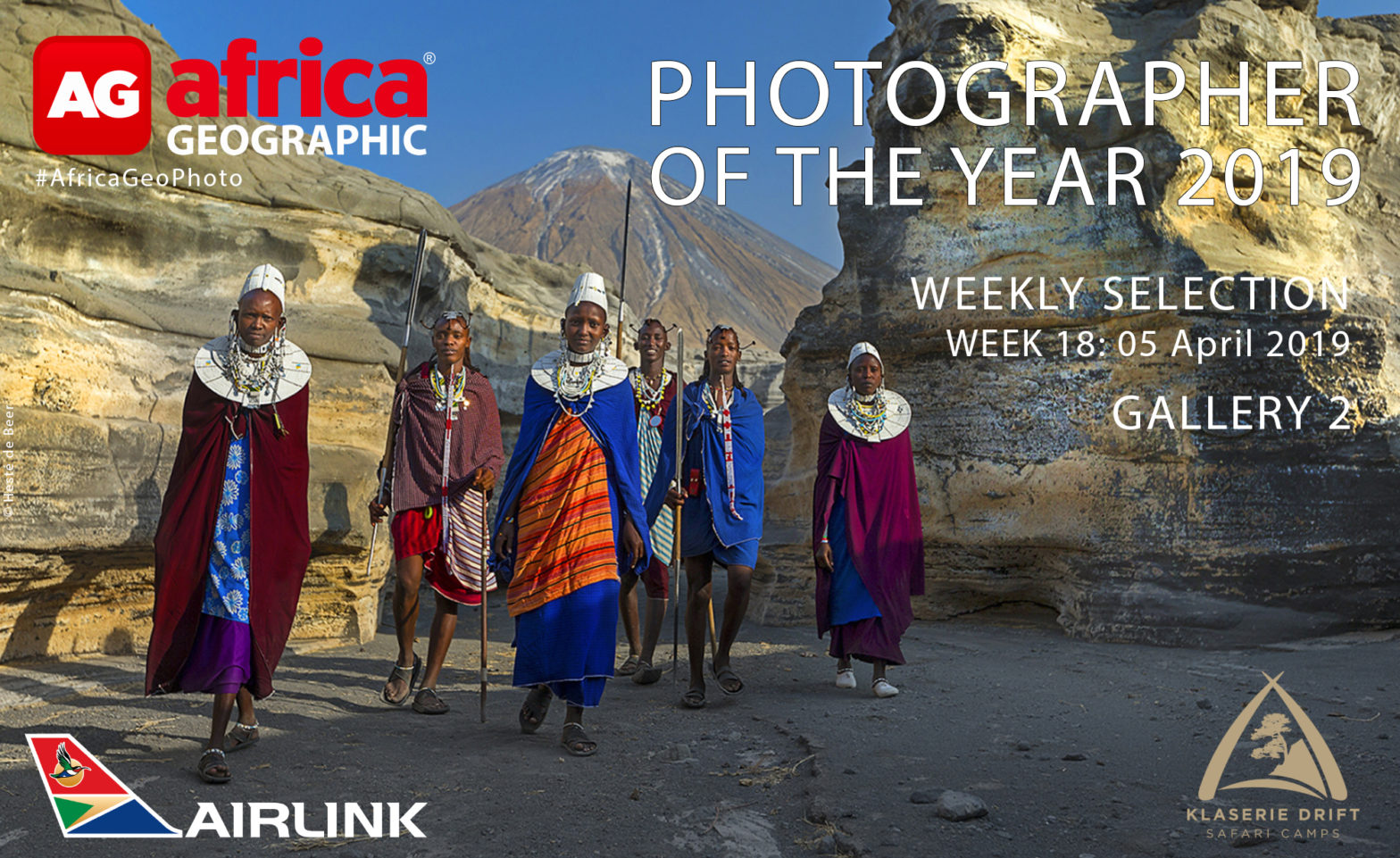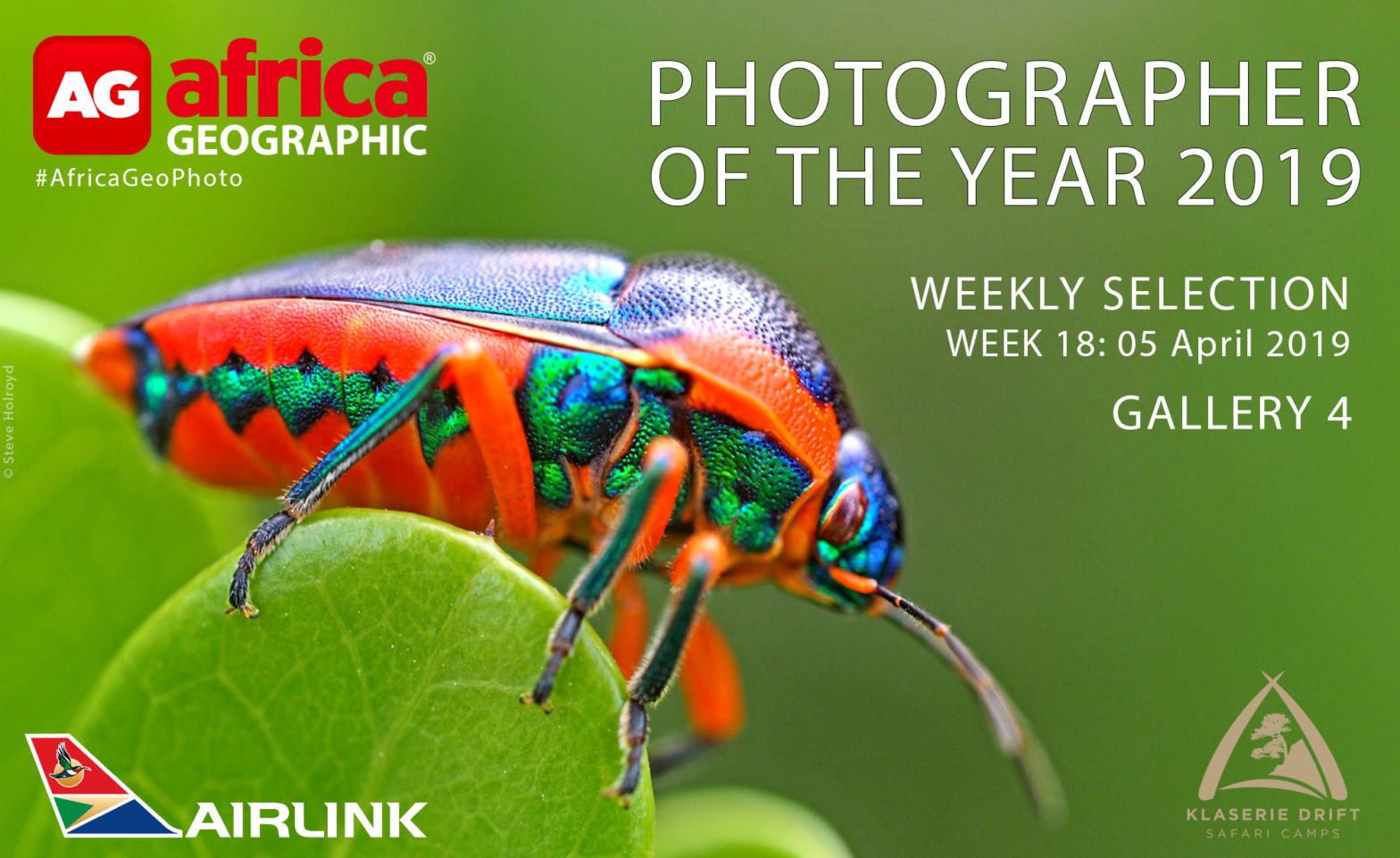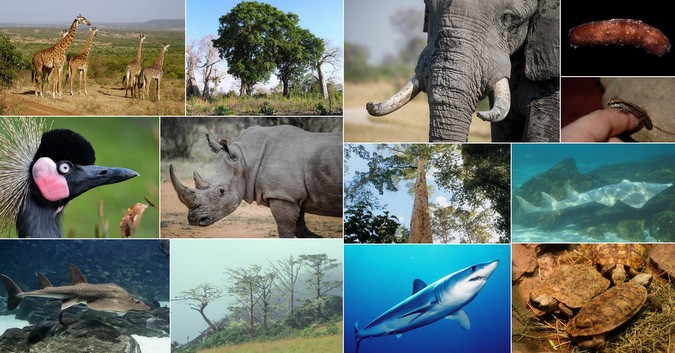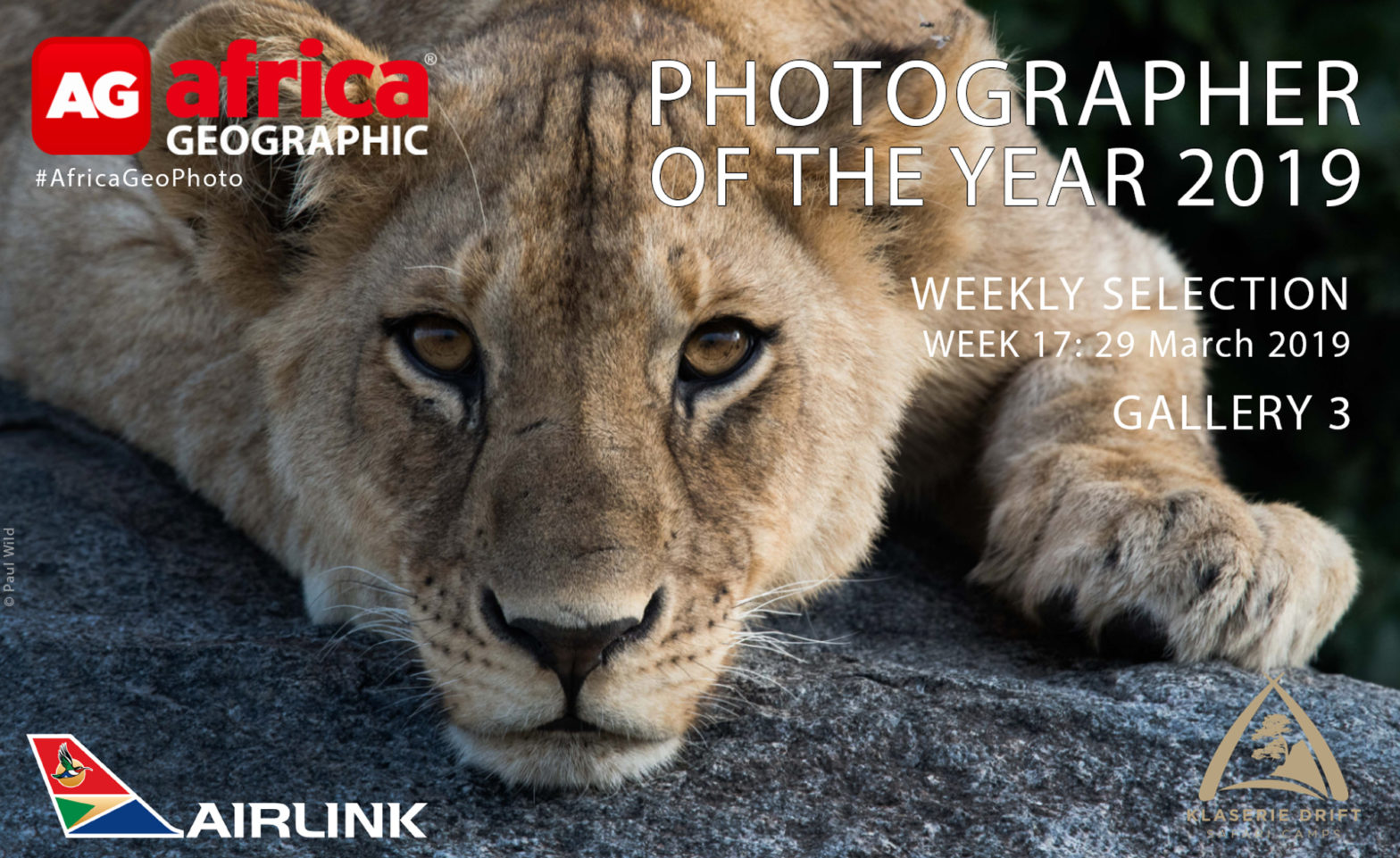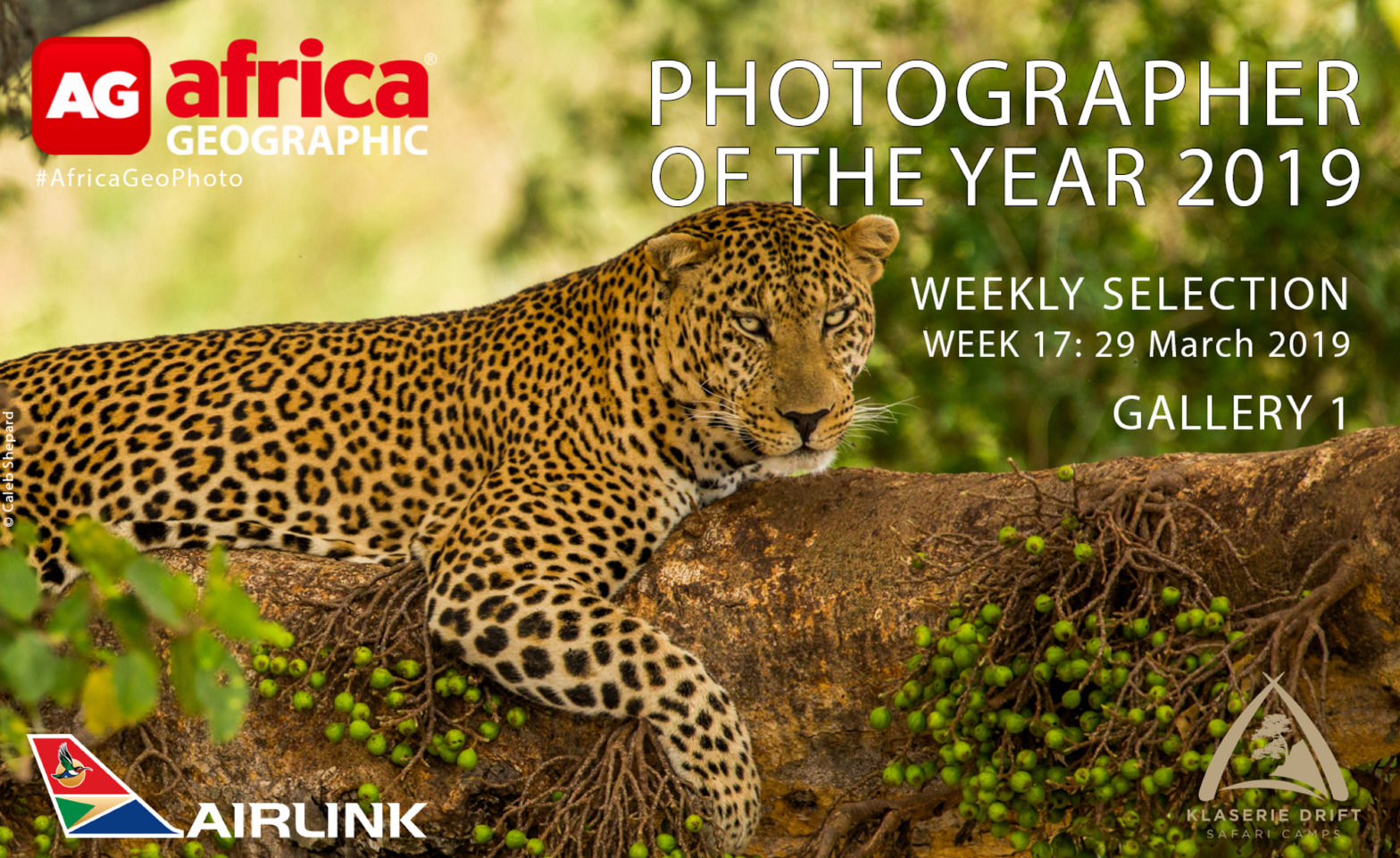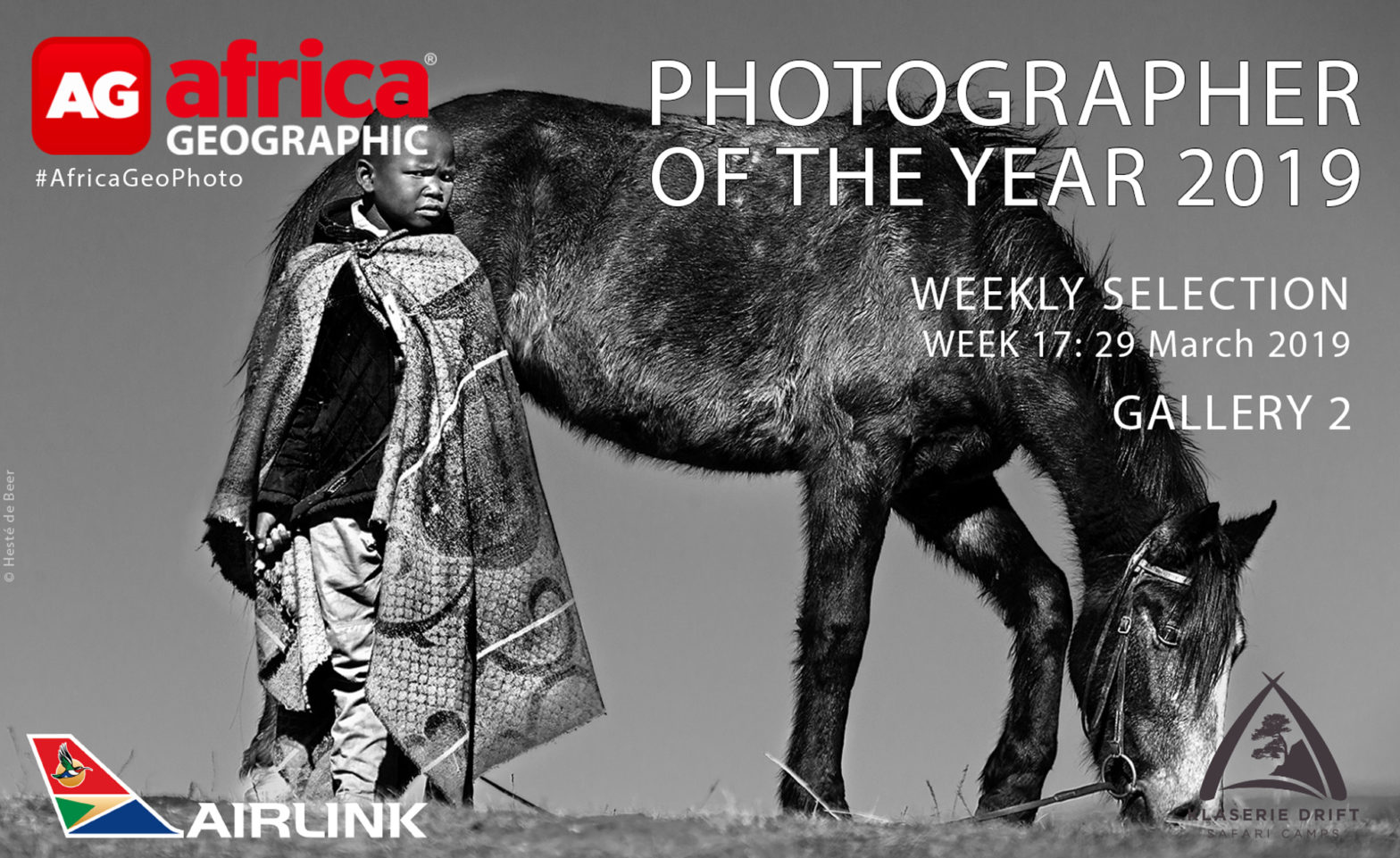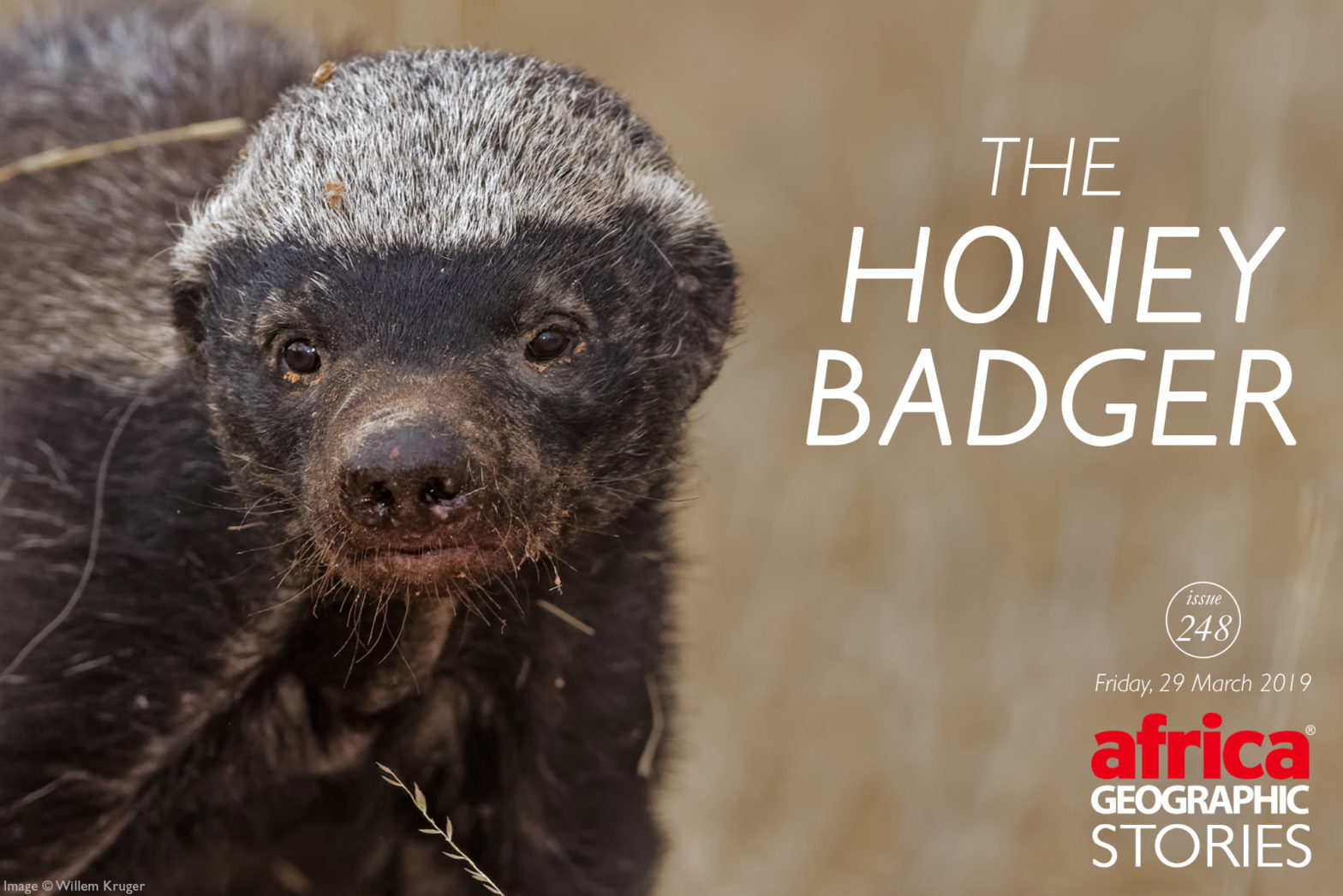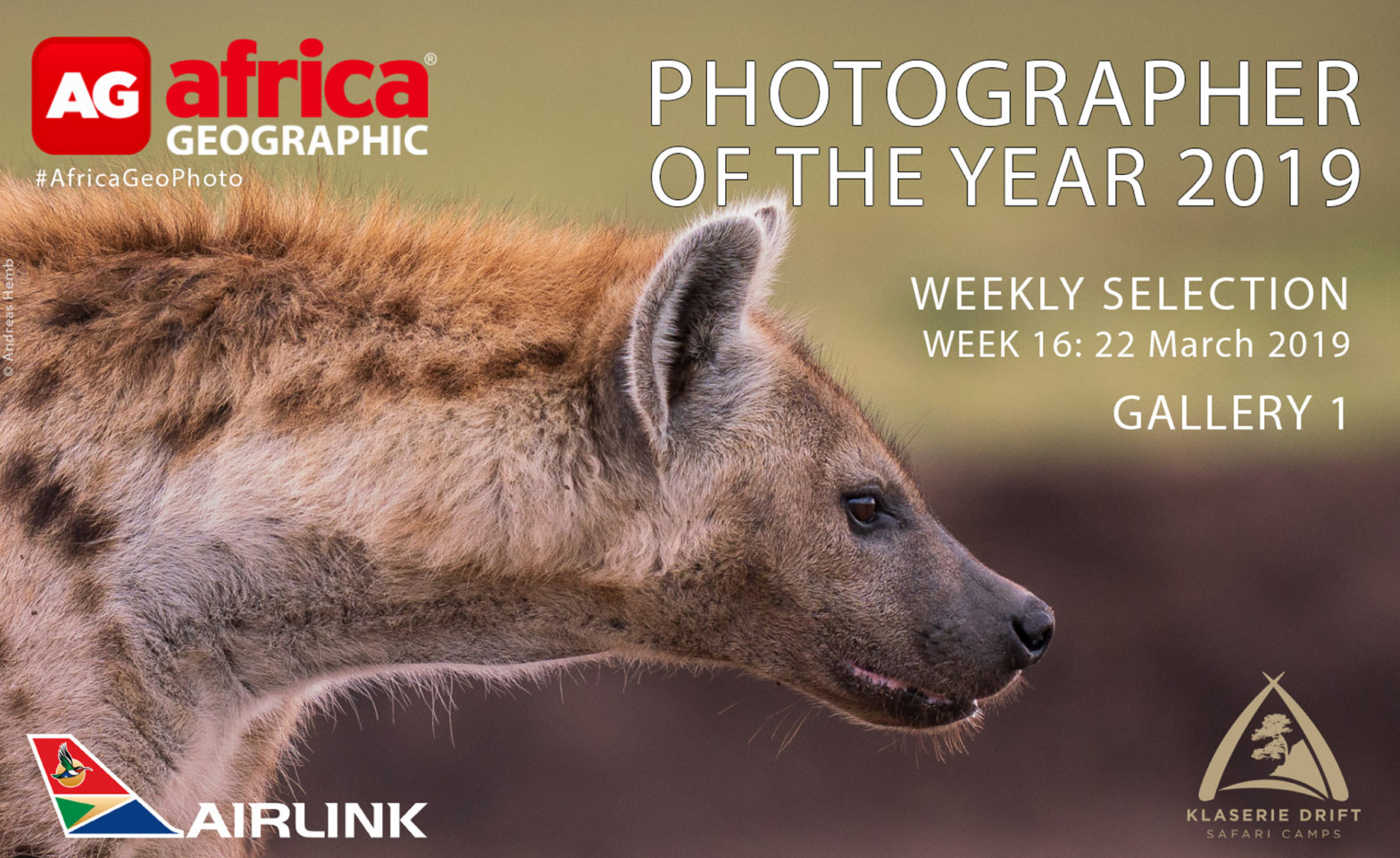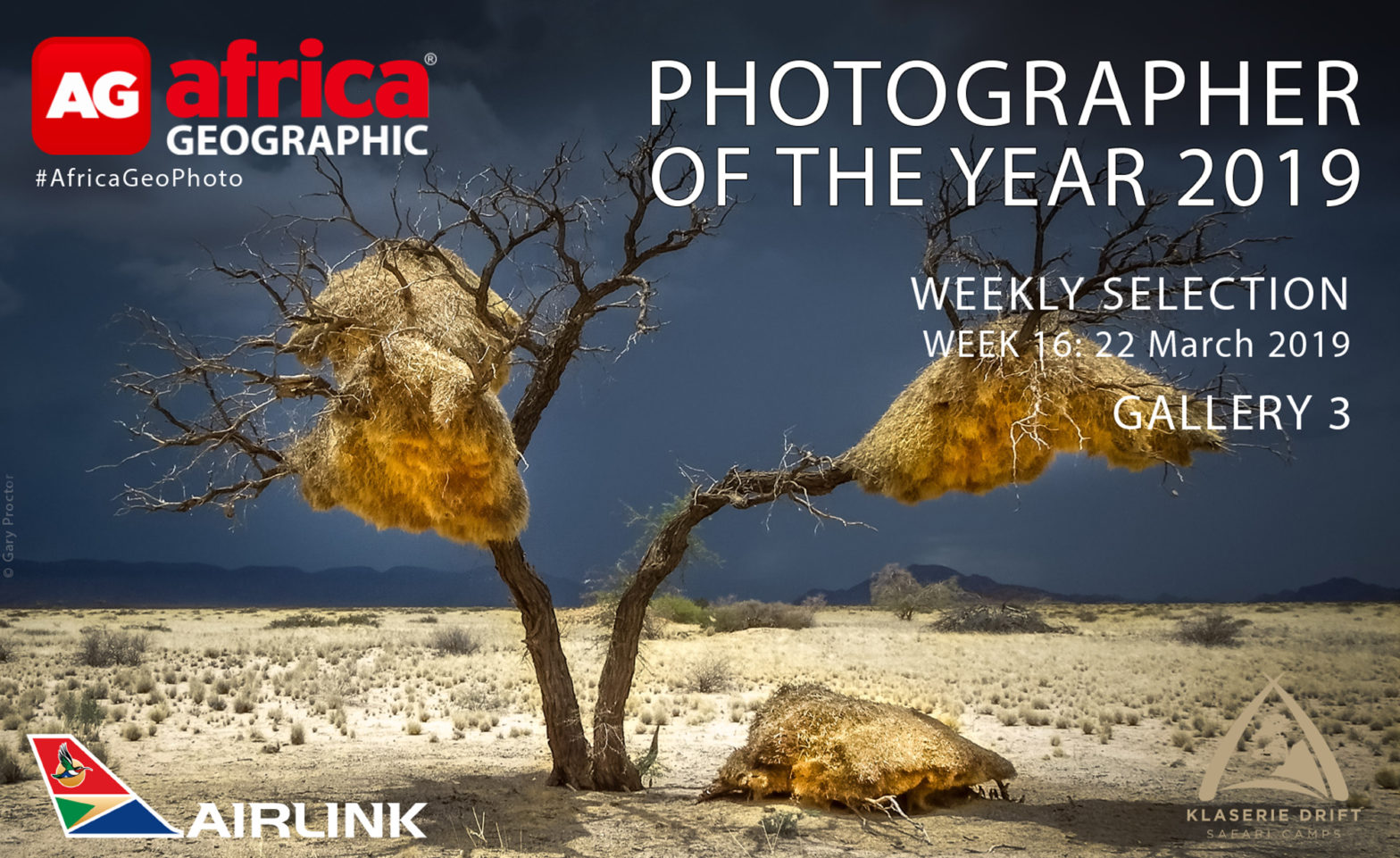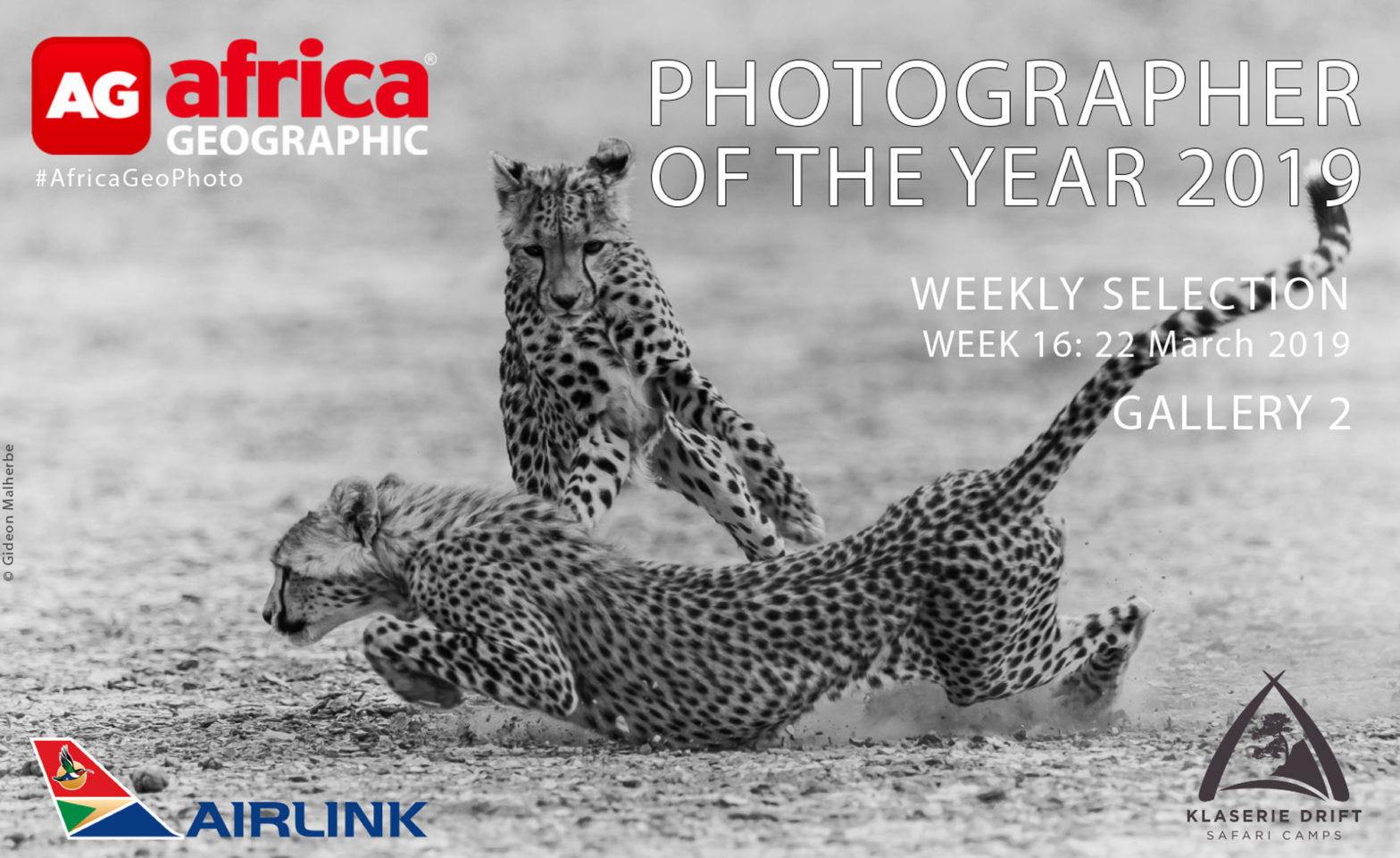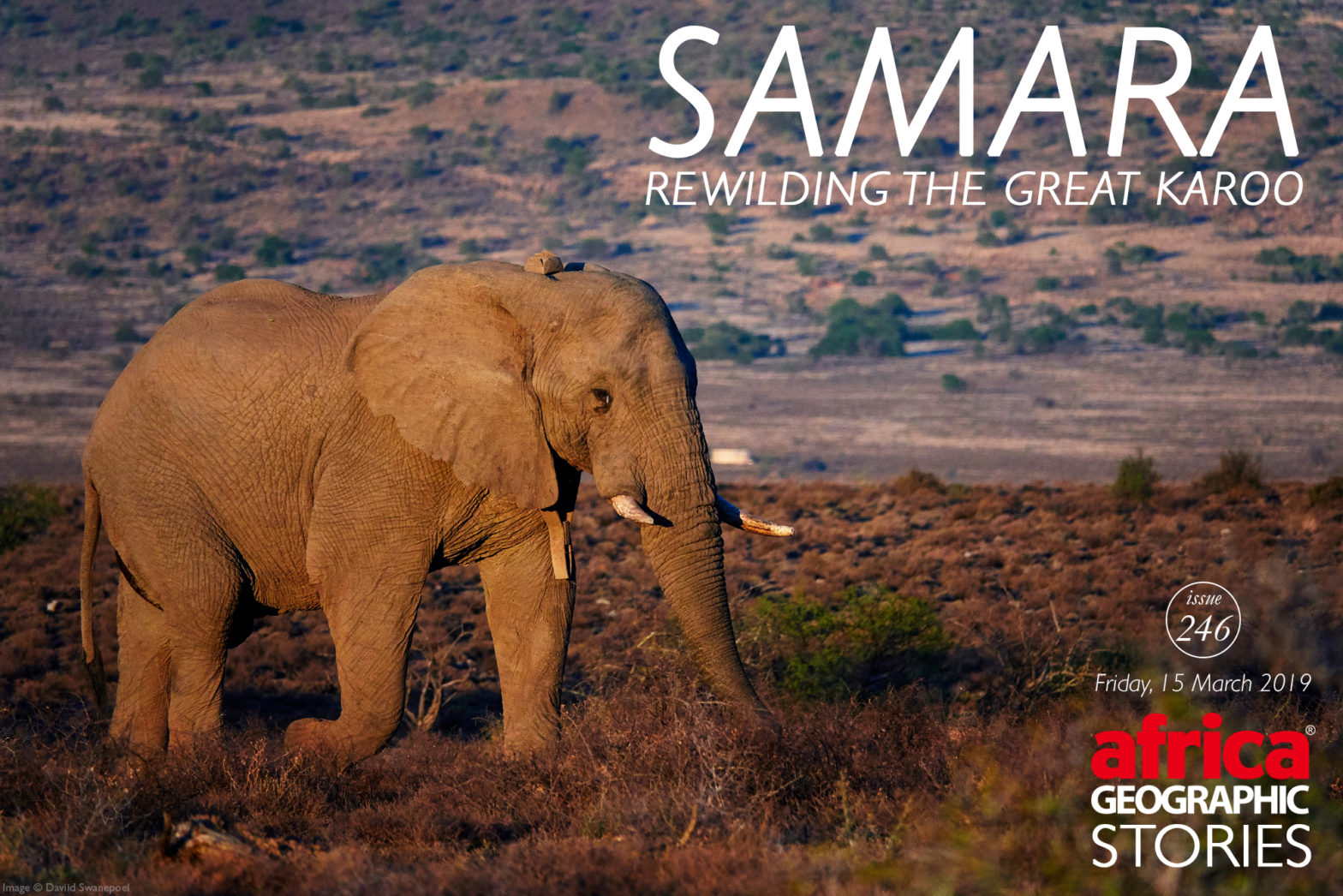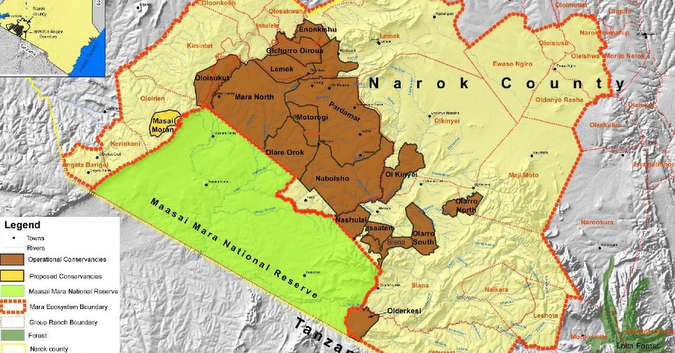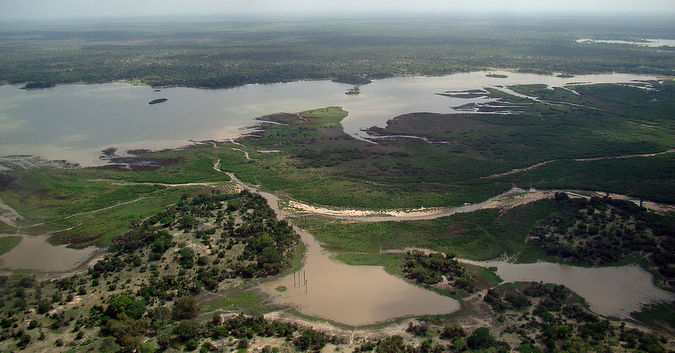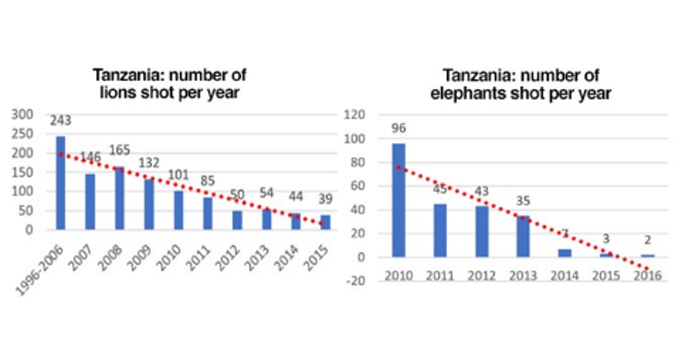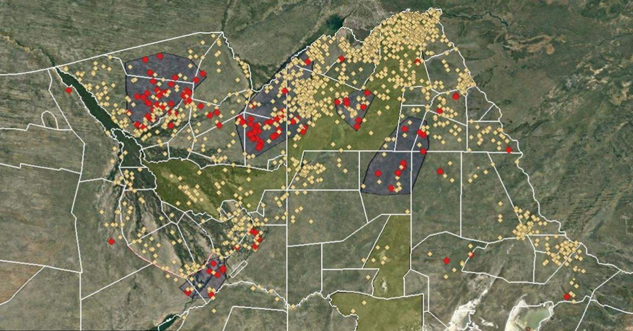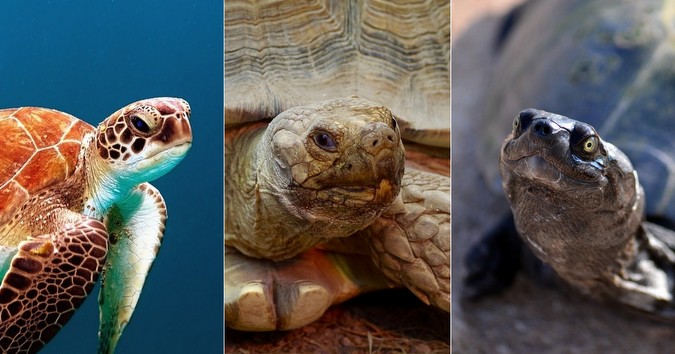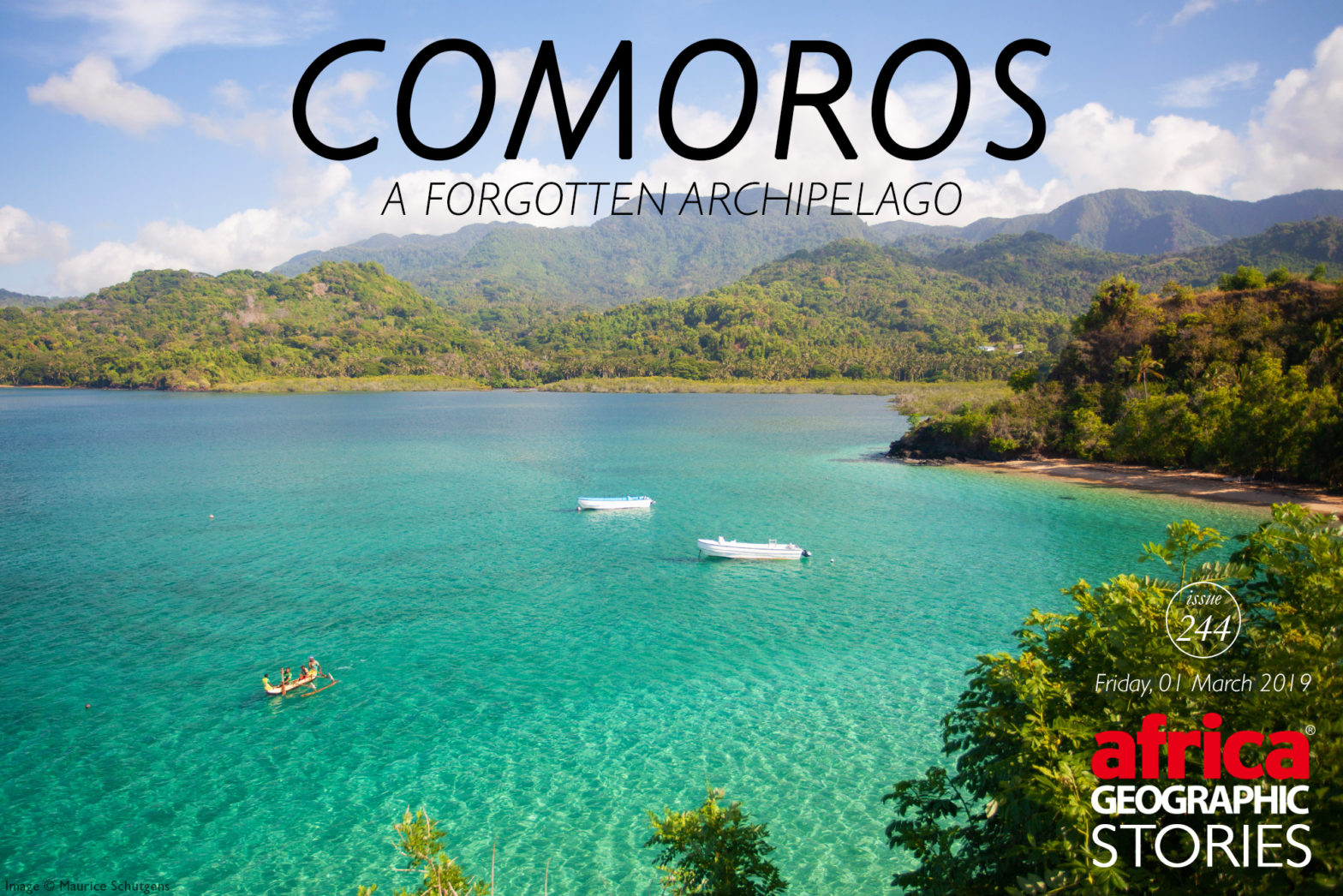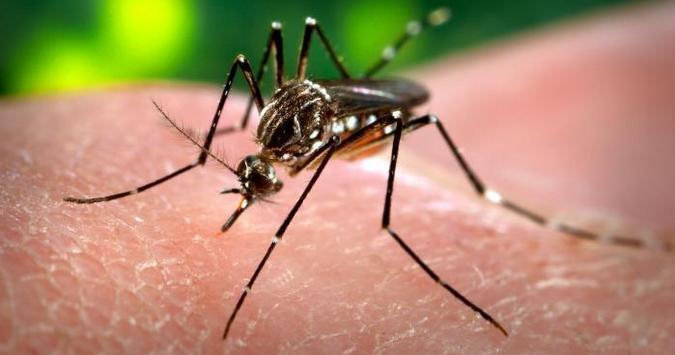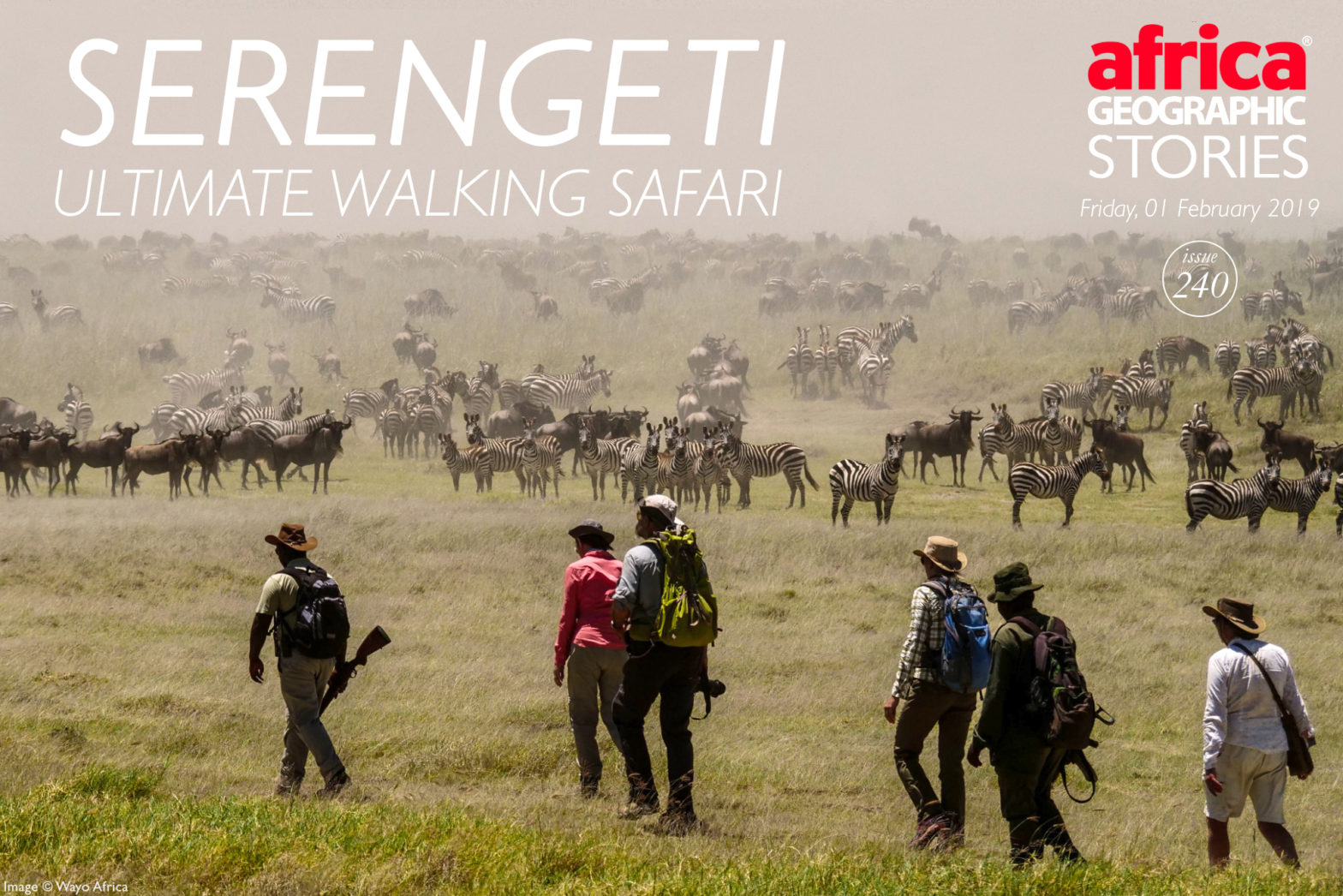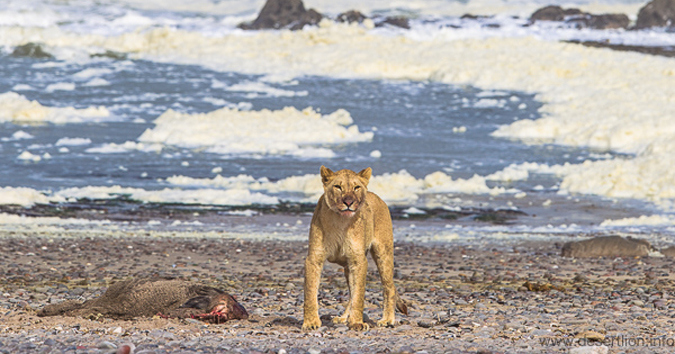MESSAGE FROM OUR CEO: For six months of every year this achingly beautiful display of Africa’s splendours dominates our lives, and my team and I bask in the glow and challenge of selecting each week’s best images to share with you. Until finally, in May, we select the ultimate winners. What a process! This year …
Author Archives: teamAG
Study: Elephant poaching rates in decline, but iconic species remains under threat
Latest study reveals elephant poaching rates in Africa have started to decline, but levels of poverty, corruption and ivory demand still threaten the iconic species.
Photographer of the Year 2019: Finalists
Our Photographer of the Year 2019 competition is now closed for entries and we are excited to announce the Finalists! Only one week to go before we announce our winners! THE FOLLOWING GALLERY OF FINALISTS IS IN NO PARTICULAR ORDER
Photographer of the Year 2019: Semi-finalists: Gallery 2
Our Photographer of the Year 2019 competition is ow closed for entries and we are excited to announce the Semi-finalists! Only two weeks to go before we announce our winners! There are two galleries showcasing the Semi-finalists. To see the other gallery click here: Semi-finalists Gallery 1 The following gallery of Semi-finalists is in no particular order.
Photographer of the Year 2019: Semi-finalists: Gallery 1
Our Photographer of the Year 2019 competition is ow closed for entries and we are excited to announce the Semi-finalists! Only two weeks to go before we announce our winners! There are two galleries showcasing the Semi-finalists. To see the other gallery click here: Semi-finalists Gallery 2 The following gallery of Semi-finalists is in no particular order.
Lion populations show significant loss of genetic diversity, say researchers
Lion populations in southern Africa are weakening genetically, and less able to recover from current and future pressures, say researchers.
Photographer of the Year 2019: Top 101: Gallery 2
Our Photographer of the Year 2019 competition is now closed for entries and this week we will look at the first of our finalists: The Top 101! There are four galleries showcasing the Top 101. To see the other galleries for the Top 101 click here: Top 101 Gallery 1, Top 101 Gallery 3, and Top 101 Gallery 4.
Photographer of the Year 2019: Top 101: Gallery 3
Our Photographer of the Year 2019 competition is now closed for entries and this week we will look at the first of our finalists: The Top 101! There are four galleries showcasing the Top 101. To see the other galleries for the Top 101 click here: Top 101 Gallery 1, Top 101 Gallery 2, and Top 101 Gallery 4.
Photographer of the Year 2019: Top 101: Gallery 1
Our Photographer of the Year 2019 competition is now closed for entries and this week we will look at the first of our finalists: The Top 101! There are four galleries showcasing the Top 101. To see the other galleries for the Top 101 click here: Top 101 Gallery 2, Top 101 Gallery 3, and Top 101 Gallery 4.
Photographer of the Year 2019: Top 101: Gallery 4
Our Photographer of the Year 2019 competition is now closed for entries and this week we will look at the first of our finalists: The Top 101! There are four galleries showcasing the Top 101. To see the other galleries for the Top 101 click here: Top 101 Gallery 1, Top 101 Gallery 2, and Top 101 Gallery 3.
Elephant management plan announced for KAZA countries
Elephant management plan announced by southern African countries that host more than 50% of the remaining African savannah elephants.
Photographer of the Year 2019 Weekly Selection: Week 22: Gallery 3
Our Photographer of the Year 2019 competition is now closed for entries and this week we will look at the last remaining entries chosen for the Weekly Selection galleries. There are four galleries showcasing this week’s Weekly Selection. To see the other galleries for this week’s selection click here: Weekly Selection Gallery 1, Weekly Selection …
Continue reading “Photographer of the Year 2019 Weekly Selection: Week 22: Gallery 3”
Photographer of the Year 2019 Weekly Selection: Week 22: Gallery 4
Our Photographer of the Year 2019 competition is now closed for entries and this week we will look at the last remaining entries chosen for the Weekly Selection galleries. There are four galleries showcasing this week’s Weekly Selection. To see the other galleries for this week’s selection click here: Weekly Selection Gallery 1, Weekly Selection …
Continue reading “Photographer of the Year 2019 Weekly Selection: Week 22: Gallery 4”
Photographer of the Year 2019 Weekly Selection: Week 22: Gallery 2
Our Photographer of the Year 2019 competition is now closed for entries and this week we will look at the last remaining entries chosen for the Weekly Selection galleries. There are four galleries showcasing this week’s Weekly Selection. To see the other galleries for this week’s selection click here: Weekly Selection Gallery 1, Weekly Selection …
Continue reading “Photographer of the Year 2019 Weekly Selection: Week 22: Gallery 2”
Photographer of the Year 2019 Weekly Selection: Week 22: Gallery 1
Our Photographer of the Year 2019 competition is now closed for entries and this week we will look at the last remaining entries chosen for the Weekly Selection galleries. There are four galleries showcasing this week’s Weekly Selection. To see the other galleries for this week’s selection click here: Weekly Selection Gallery 2, Weekly Selection …
Continue reading “Photographer of the Year 2019 Weekly Selection: Week 22: Gallery 1”
Photographer of the Year 2019 Weekly Selection: Week 21: Gallery 2
Our Photographer of the Year 2019 competition is now in the last week for receiving entries and at midnight on April 30th (CAT time) the competition will close for submissions, after which our judges will spend the month of May considering every selected photo before announcing our winners! There are four galleries showcasing this week’s Weekly Selection. To see …
Continue reading “Photographer of the Year 2019 Weekly Selection: Week 21: Gallery 2”
Photographer of the Year 2019 Weekly Selection: Week 21: Gallery 3
Our Photographer of the Year 2019 competition is now in the last week for receiving entries and at midnight on April 30th (CAT time) the competition will close for submissions, after which our judges will spend the month of May considering every selected photo before announcing our winners! There are four galleries showcasing this week’s Weekly Selection. To see …
Continue reading “Photographer of the Year 2019 Weekly Selection: Week 21: Gallery 3”
Photographer of the Year 2019 Weekly Selection: Week 21: Gallery 4
Our Photographer of the Year 2019 competition is now in the last week for receiving entries and at midnight on April 30th (CAT time) the competition will close for submissions, after which our judges will spend the month of May considering every selected photo before announcing our winners! There are four galleries showcasing this week’s Weekly Selection. To see …
Continue reading “Photographer of the Year 2019 Weekly Selection: Week 21: Gallery 4”
Photographer of the Year 2019 Weekly Selection: Week 21: Gallery 1
Our Photographer of the Year 2019 competition is now in the last week for receiving entries and at midnight on April 30th (CAT time) the competition will close for submissions, after which our judges will spend the month of May considering every selected photo before announcing our winners! There are four galleries showcasing this week’s Weekly Selection. To see …
Continue reading “Photographer of the Year 2019 Weekly Selection: Week 21: Gallery 1”
Another giant elephant taken by trophy hunters
Another blow for Africa’s remaining large-tusked elephants, as trophy hunters kill another massive elephant in Gonarezhou, Zimbabwe. The surgical removal of Africa’s giants continues.
Photographer of the Year 2019 Weekly Selection: Week 20: Gallery 2
Our Photographer of the Year 2019 competition is heading into the last week for receiving entries and at midnight on April 30th (CAT time) the competition will close for submissions. There are two galleries showcasing this week’s Weekly Selection. To see the other gallery for this week’s selection click here: Weekly Selection Gallery 1
Photographer of the Year 2019 Weekly Selection: Week 20: Gallery 1
Our Photographer of the Year 2019 competition is heading into the last week for receiving entries and at midnight on April 30th (CAT time) the competition will close for submissions. There are two galleries showcasing this week’s Weekly Selection. To see the other gallery for this week’s selection click here: Weekly Selection Gallery 2
Opinion: Kruger citrus farming impact report rated as ‘poor’ – serious questions asked
The Draft Impact Report compiled for the proposed citrus farm near Kruger has been deemed ‘poor in analytical components’ and ‘unsatisfactory because of omissions or inadequacies’ according to Elephants Alive researcher.
Photographer of the Year 2019 Weekly Selection: Week 19: Gallery 1
Our Photographer of the Year 2019 competition is now in full swing and there is only a month left to go before entries close! There are three galleries showcasing this week’s Weekly Selection. To see the other two galleries for this week’s selection click here: Weekly Selection Gallery 2 and Weekly Selection Gallery 3.
Photographer of the Year 2019 Weekly Selection: Week 19: Gallery 3
Our Photographer of the Year 2019 competition is now in full swing and there is only a month left to go before entries close! There are three galleries showcasing this week’s Weekly Selection. To see the other two galleries for this week’s selection click here: Weekly Selection Gallery 1 and Weekly Selection Gallery 2.
Photographer of the Year 2019 Weekly Selection: Week 19: Gallery 2
Our Photographer of the Year 2019 competition is now in full swing and there is only a month left to go before entries close! There are three galleries showcasing this week’s Weekly Selection. To see the other two galleries for this week’s selection click here: Weekly Selection Gallery 1 and Weekly Selection Gallery 3.
Discovering Ethiopia
Ethiopia is a fascinating country. Rapidly recovering since 1991 from the ravages of Marxism, and only relatively recently discovered by cultural and wildlife tourists, it is one of three countries in the world that has never been colonised. It is the second-most populous country in Africa, after Nigeria, with 105 million people, comprising 80 ethnic groups, …
Maasai Mara – Falling in love again
Safari report-back: My private safari in the Maasai Mara with pro photographer Arnfinn Johansen and Africa Geographic. By Ruzdi Ekenheim
Photographer of the Year 2019 Weekly Selection: Week 18: Gallery 1
Our Photographer of the Year 2019 competition is now in full swing and there is only a month left to go before entries close! There are four galleries showcasing this week’s Weekly Selection. To see the other three galleries for this week’s selection, click here: Weekly Selection Gallery 2, Weekly Selection Gallery 3 and Weekly Selection Gallery 4.
Photographer of the Year 2019 Weekly Selection: Week 18: Gallery 3
Our Photographer of the Year 2019 competition is now in full swing and there is only a month left to go before entries close! There are four galleries showcasing this week’s Weekly Selection. To see the other three galleries for this week’s selection click here: Weekly Selection Gallery 1, Weekly Selection Gallery 2 and Weekly Selection Gallery 4.
Photographer of the Year 2019 Weekly Selection: Week 18: Gallery 2
Our Photographer of the Year 2019 is now in full swing and there is only a month left to go before entries close! There are four galleries showcasing this week’s Weekly Selection. To see the other three galleries for this week’s selection click here: Weekly Selection Gallery 1, Weekly Selection Gallery 3 and Weekly Selection Gallery 4.
Photographer of the Year 2019 Weekly Selection: Week 18: Gallery 4
Our Photographer of the Year 2019 is now in full swing and there is only a month left to go before entries close! There are four galleries showcasing this week’s Weekly Selection. To see the other three galleries for this week’s selection click here: Weekly Selection Gallery 1, Weekly Selection Gallery 2 and Weekly Selection Gallery 3.
What CITES will debate at CoP18 in May for these African species
CITES debates: White rhino, elephant, giraffe and other African species come under the spotlight at the May CoP18 sessions.
Photographer of the Year 2019 Weekly Selection: Week 17: Gallery 3
Our Photographer of the Year 2019 is now in full swing and there is only a month left to go before entries close! There are three galleries showcasing this week’s Weekly Selection. To see the other two galleries for this week’s selection, click here: Weekly Selection Gallery 1 and Weekly Selection Gallery 2.
Photographer of the Year 2019 Weekly Selection: Week 17: Gallery 1
Our Photographer of the Year 2019 is now in full swing and there is only a month left to go before entries close! There are three galleries showcasing this week’s Weekly Selection. To see the other two galleries for this week’s selection, click here: Weekly Selection Gallery 2 and Weekly Selection Gallery 3.
Photographer of the Year 2019 Weekly Selection: Week 17: Gallery 2
Our Photographer of the Year 2019 is now in full swing and there is only a month left to go before entries close! There are three galleries showcasing this week’s Weekly Selection. To see the other two galleries for this week’s selection click here: Weekly Selection Gallery 1 and Weekly Selection Gallery 3.
The Honey Badger
There is an expression in Afrikaans that goes “so taai soos ‘n ratel” – which translates to “as tough as a honey badger”. Across the continent honey badgers have earned the reputation of being tough, even lending their name to an armoured personnel carrier used by the South African Defence Force. This reputation is in part …
Photographer of the Year 2019 Weekly Selection: Week 16: Gallery 1
Our Photographer of the Year 2019 is now in full swing and there is only a month left to go before entries close! There are three galleries showcasing this week’s Weekly Selection. To see the other two galleries for this week’s selection click here: Weekly Selection Gallery 2 and Weekly Selection Gallery 3.
Photographer of the Year 2019 Weekly Selection: Week 16: Gallery 3
Our Photographer of the Year 2019 is now in full swing and there is only a month left to go before entries close! There are three galleries showcasing this week’s Weekly Selection. To see the other two galleries for this week’s selection, click here: Weekly Selection Gallery 1 and Weekly Selection Gallery 2.
Photographer of the Year 2019 Weekly Selection: Week 16: Gallery 2
Our Photographer of the Year 2019 is now in full swing and there is only a month left to go before entries close! There are three galleries showcasing this week’s Weekly Selection. To see the other two galleries for this week’s selection, click here: Weekly Selection Gallery 1 and Weekly Selection Gallery 3.
Samara – Rewilding the Great Karoo
Recreating a self-sustaining ecosystem and restoring it to its former glory is the vision of Samara Karoo Reserve in the Great Karoo.
Should Africa’s protected areas be reconfigured? – IUCN report
IUCN report asks if Africa’s protected areas need to be reconfigured in light of current conservation realities.
Luxury lodge closes as loggers move in to make way for dam in Selous Game Reserve
Azura Selous, a luxury game lodge situated along the banks of the Great Ruaha River in the remote Selous Game Reserve in southern Tanzania, has announced its sudden closure due to the unexpected arrival of loggers in the area.
Trophy hunting in Africa is in decline, and no longer pays its way
Trophy hunting in Africa is in decline, and no longer pays its way, leading to poaching and habitat loss in hunting areas – according to IUCN report
Botswana 2018 aerial survey – of elephants, baobabs and cattle
Botswana elephant survey now made public. You’ve seen all the political posturing from all sides, now read the actual report and make up your own mind.
What’s the difference between turtles, tortoises and terrapins?
Turtles, tortoises and terrapins are reptiles characterised by a cartilaginous shell – though often the terms used to describe these species can get a bit confusing, depending on the type of English used.
Comoros – The Forgotten Archipelago
The Comoros. It’s a name that conjures up a rich history of mighty sultans who once ruled over a melting pot of different cultures on islands at the end of the world. A volcanic archipelago off Africa’s east coast, the Comoros is made up of three major islands, called by their French names: Grande Comore (Ngazidja), Mohéli (Mwali), and Anjouan (Nzwani). Once …
Understanding yellow fever
Yellow fever is a disease spread by the bite of infected female mosquitoes. We take a look at this disease and the readily available vaccine
Serengeti – ultimate walking safari
Safari report-back: My walking safari in the vast Serengeti wilderness – a fantastic experience for adventurous souls. By Simon Espley
Beach lions again hunting seals and coastal birds in Namibia, after 35 years
Research has revealed that the desert-adapted lions eking out a living on the harsh northwest coast of Namibia’s Skeleton Coast National Park (SCNP) are again specialising in hunting seals and coastal birds such as flamingos and cormorants, after an absence of 35 years.

